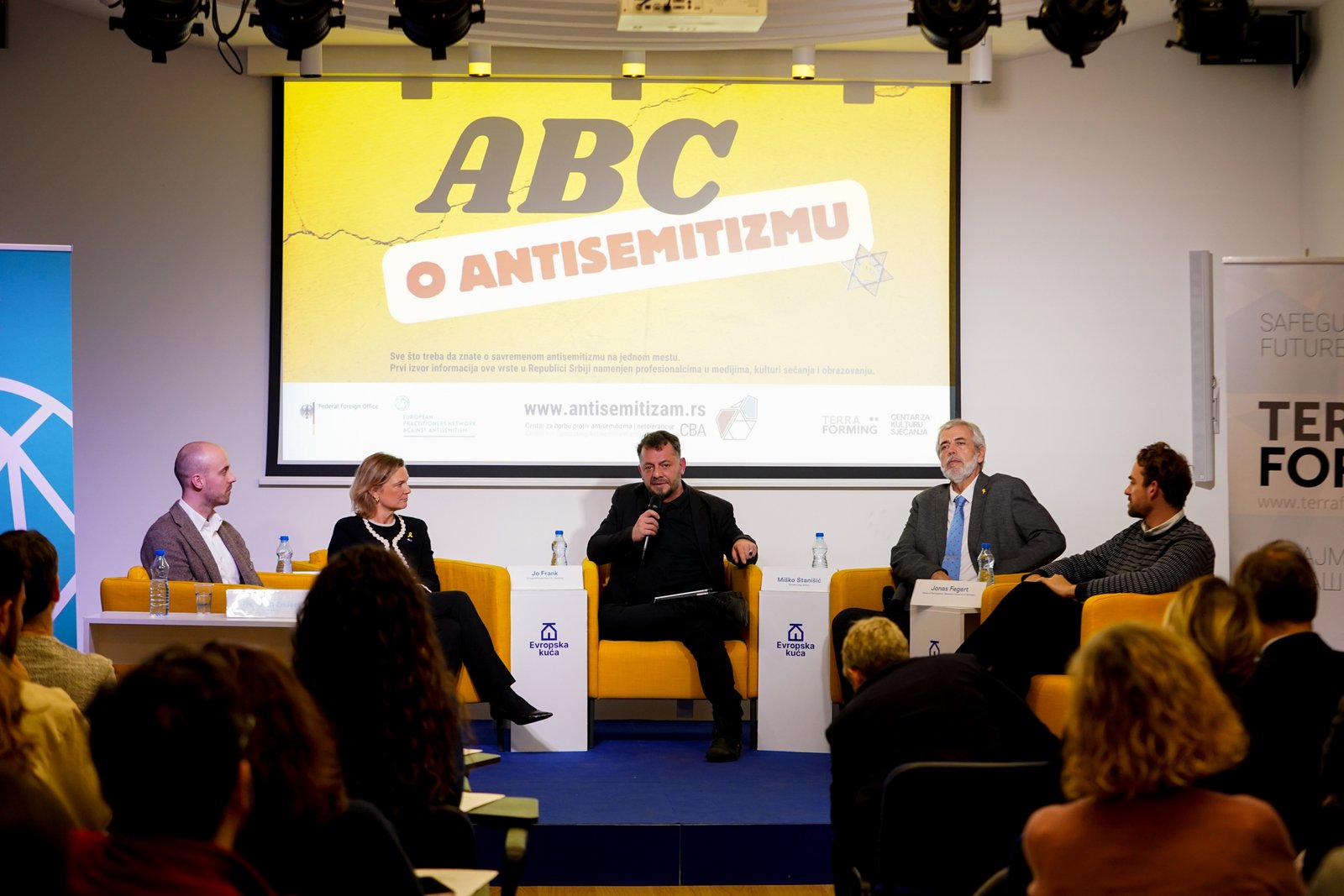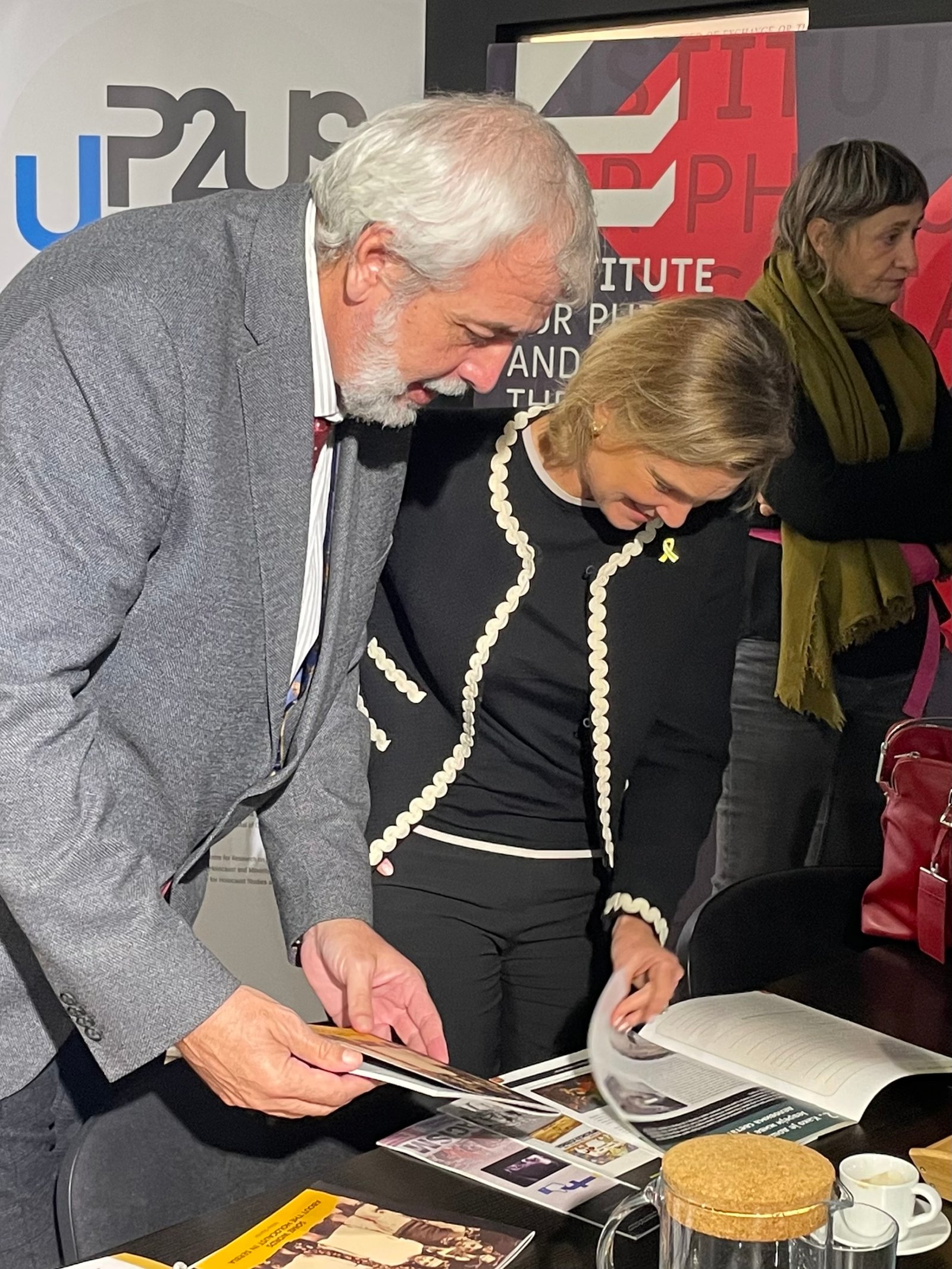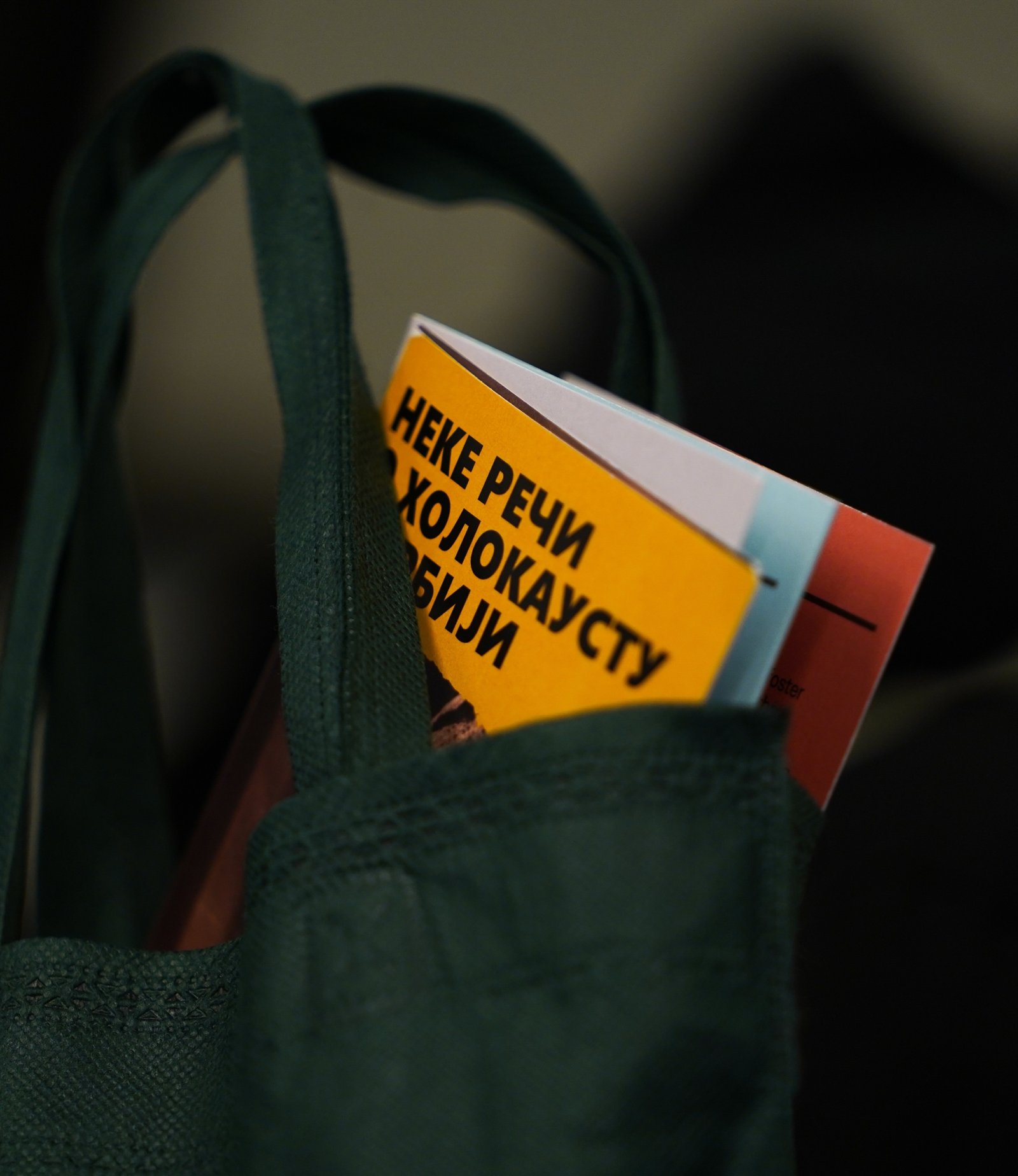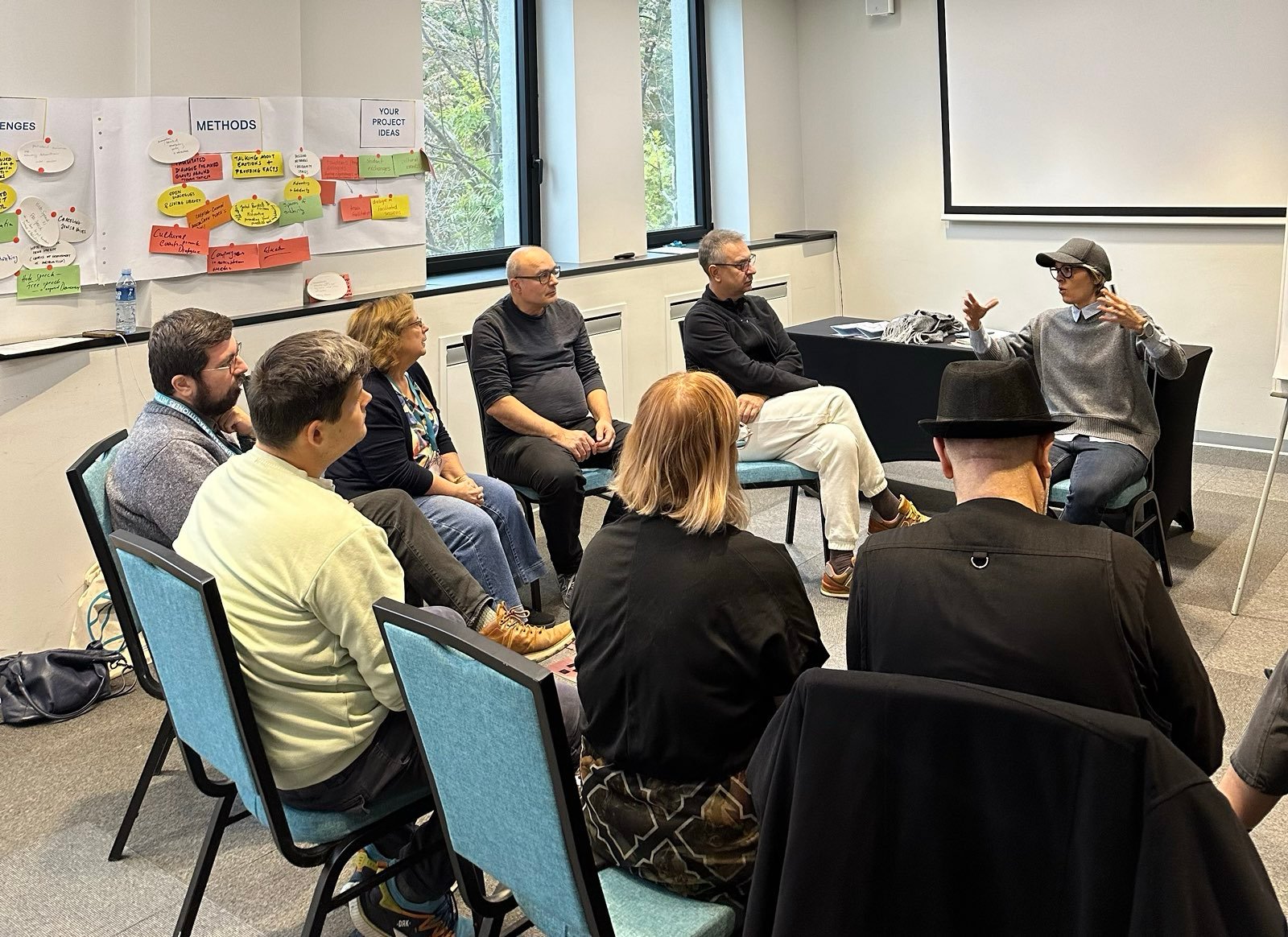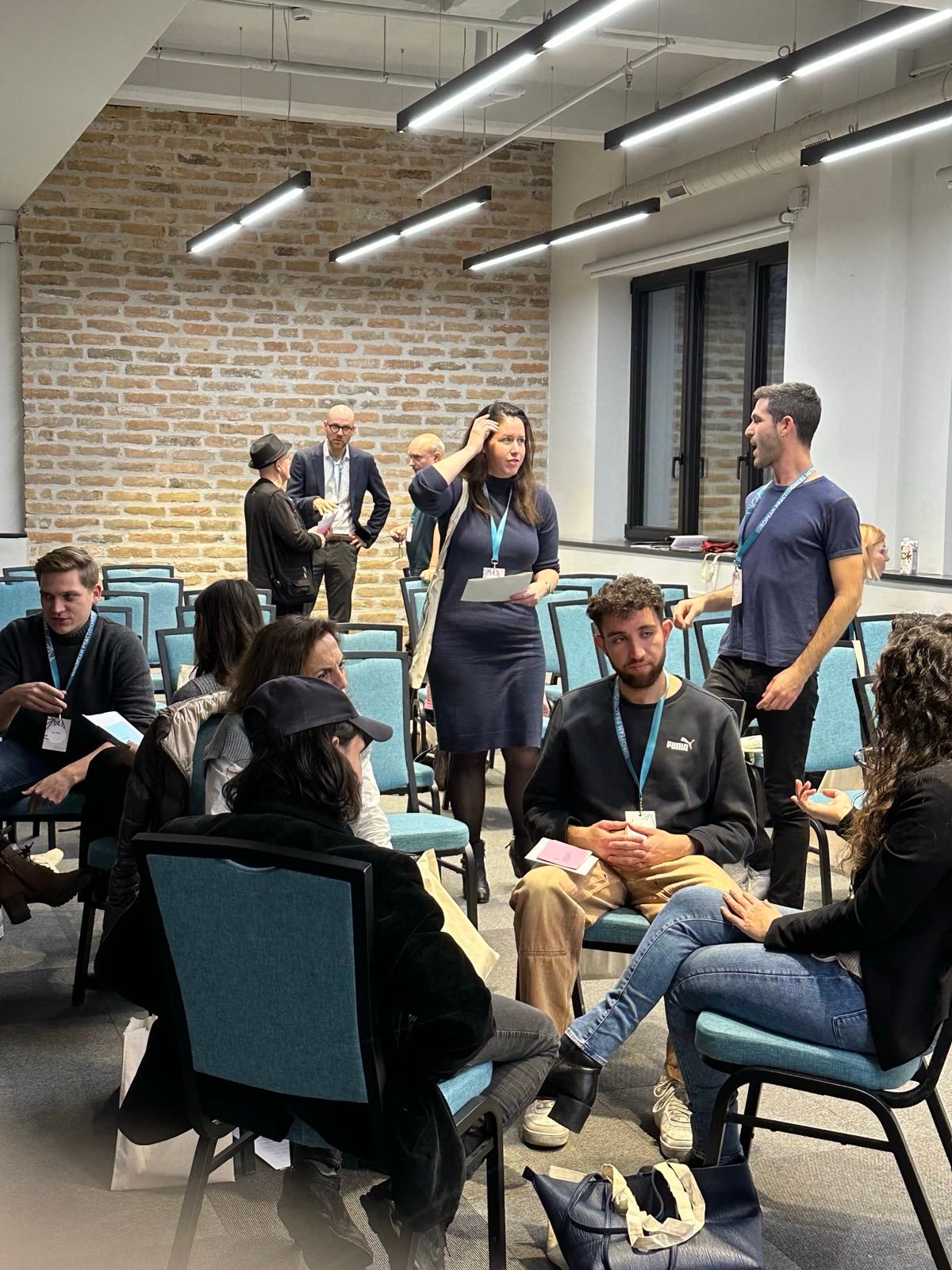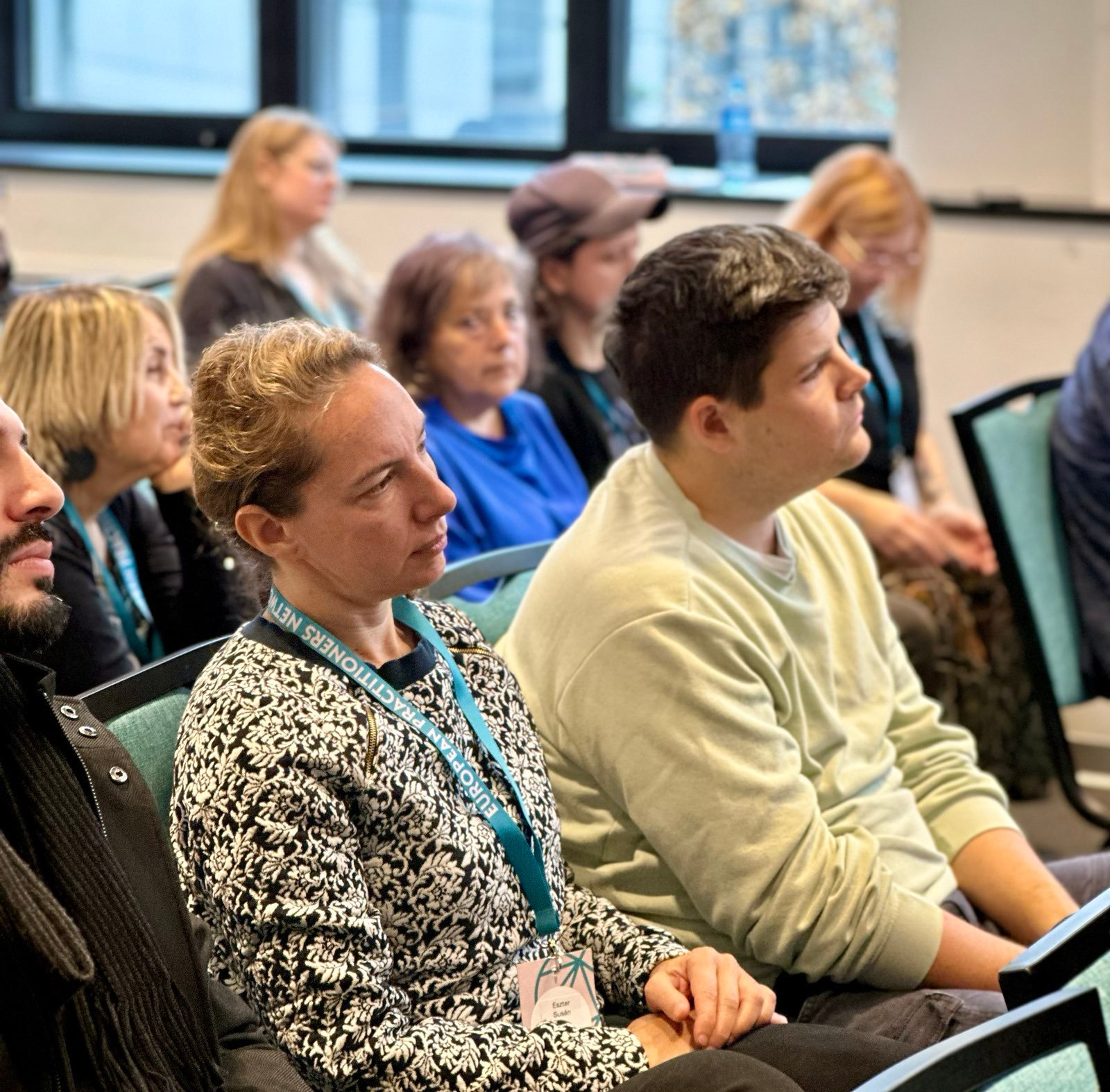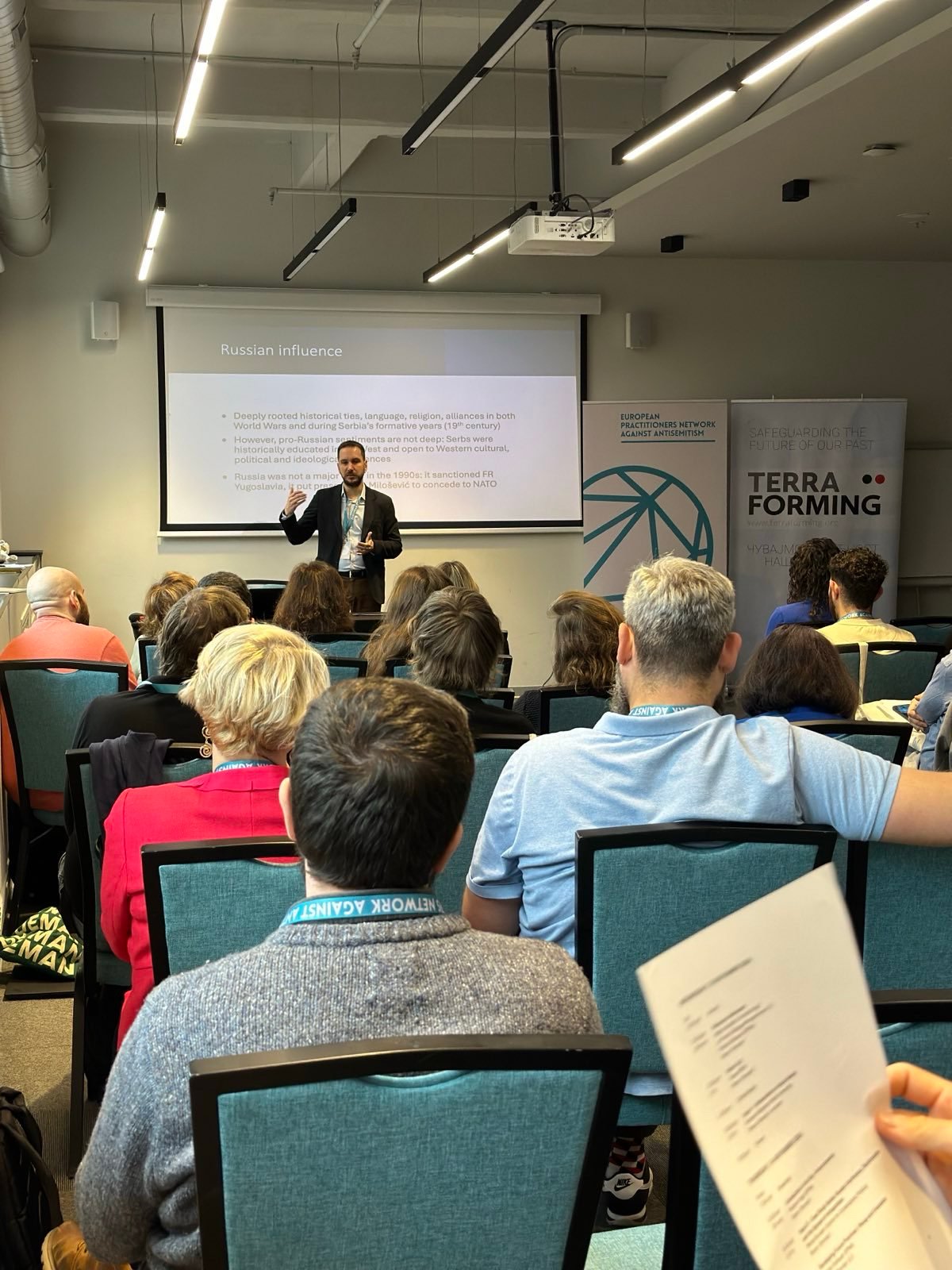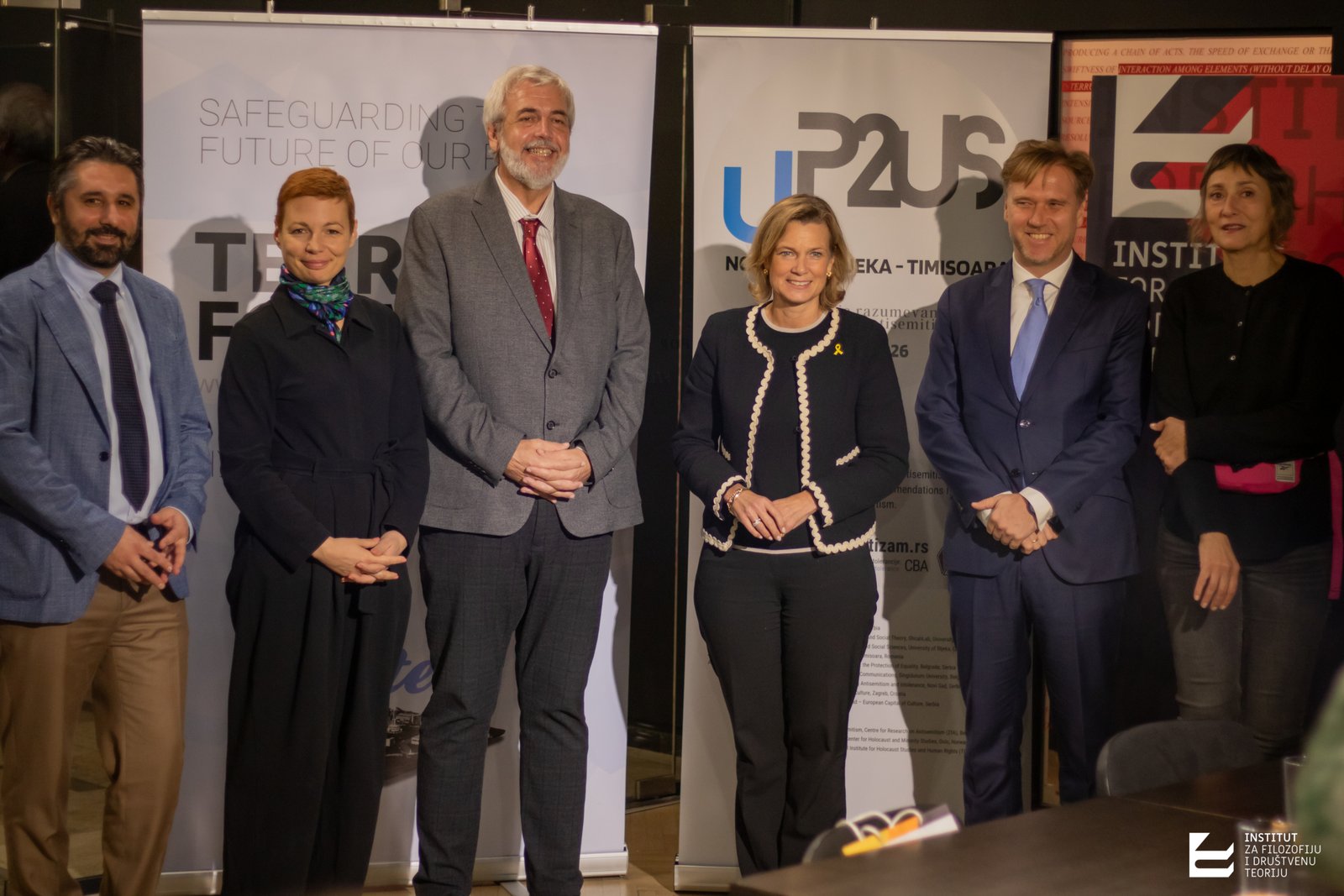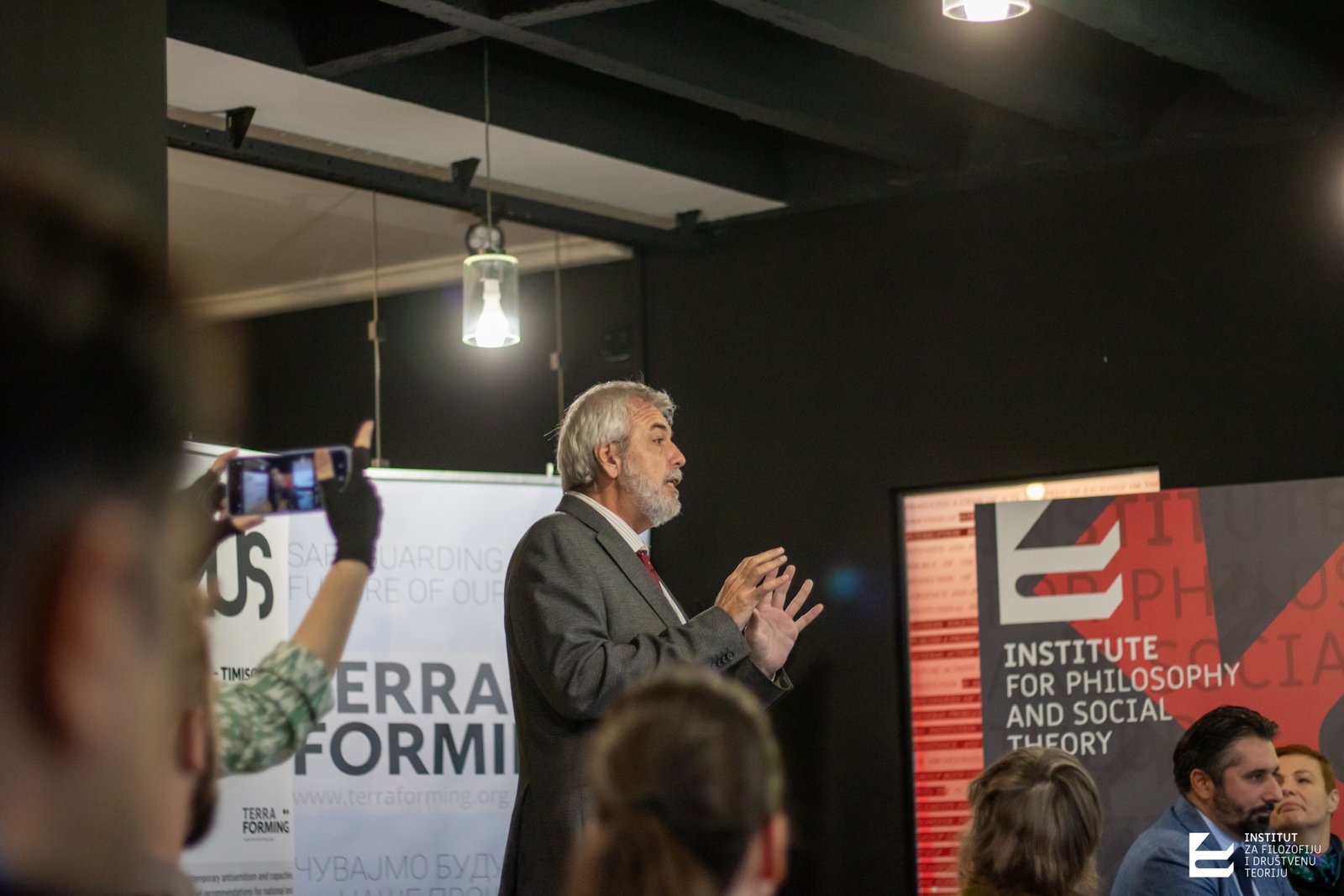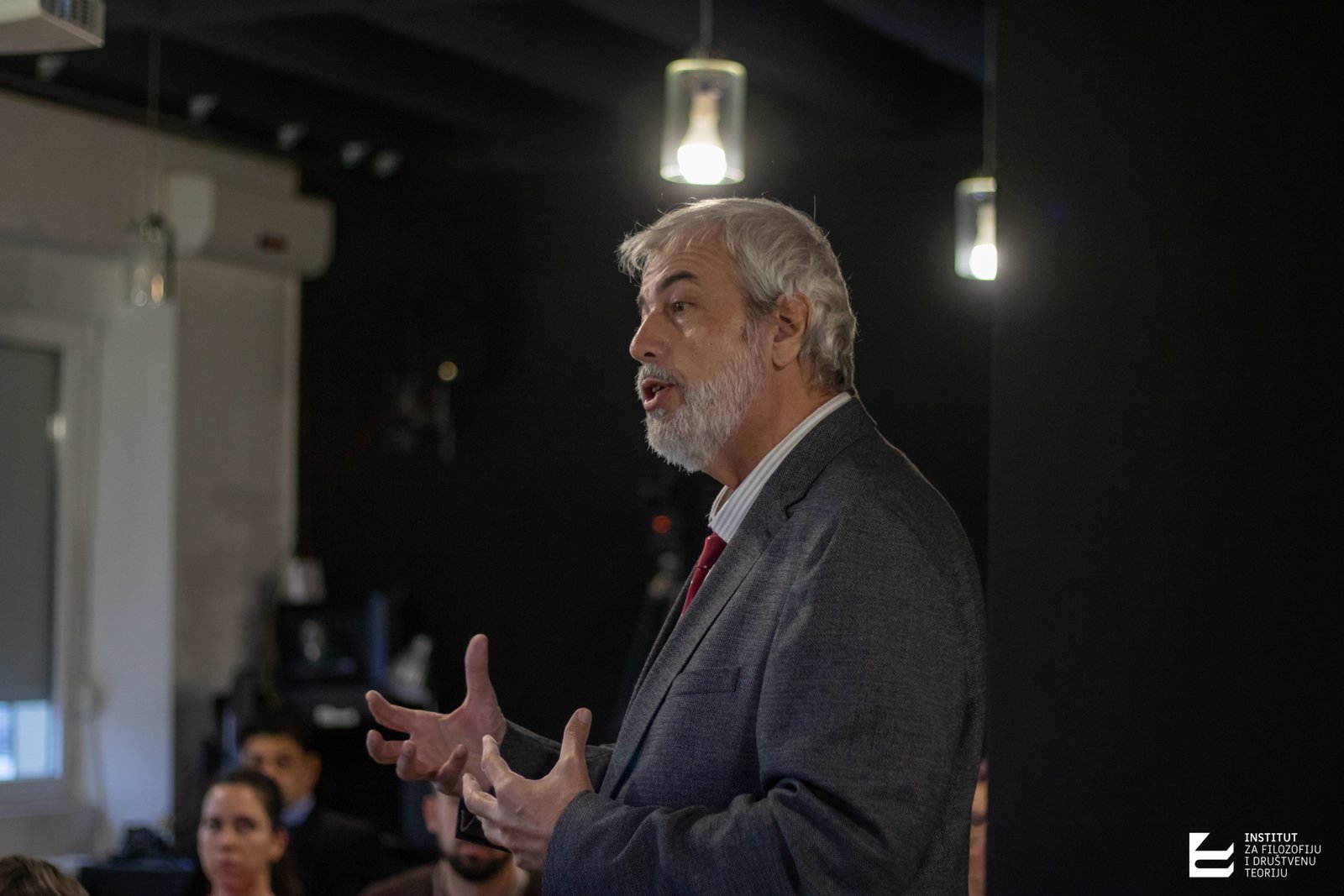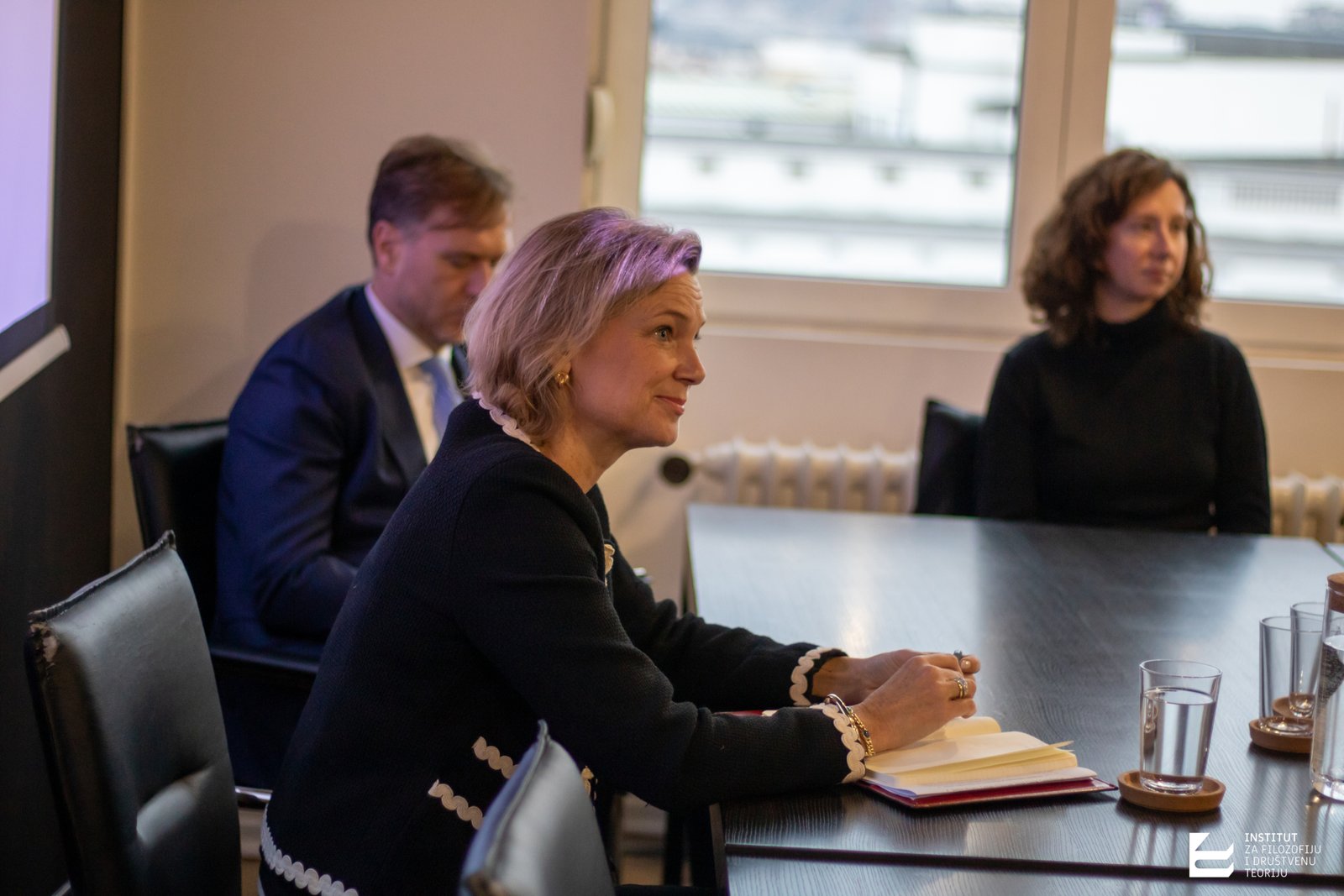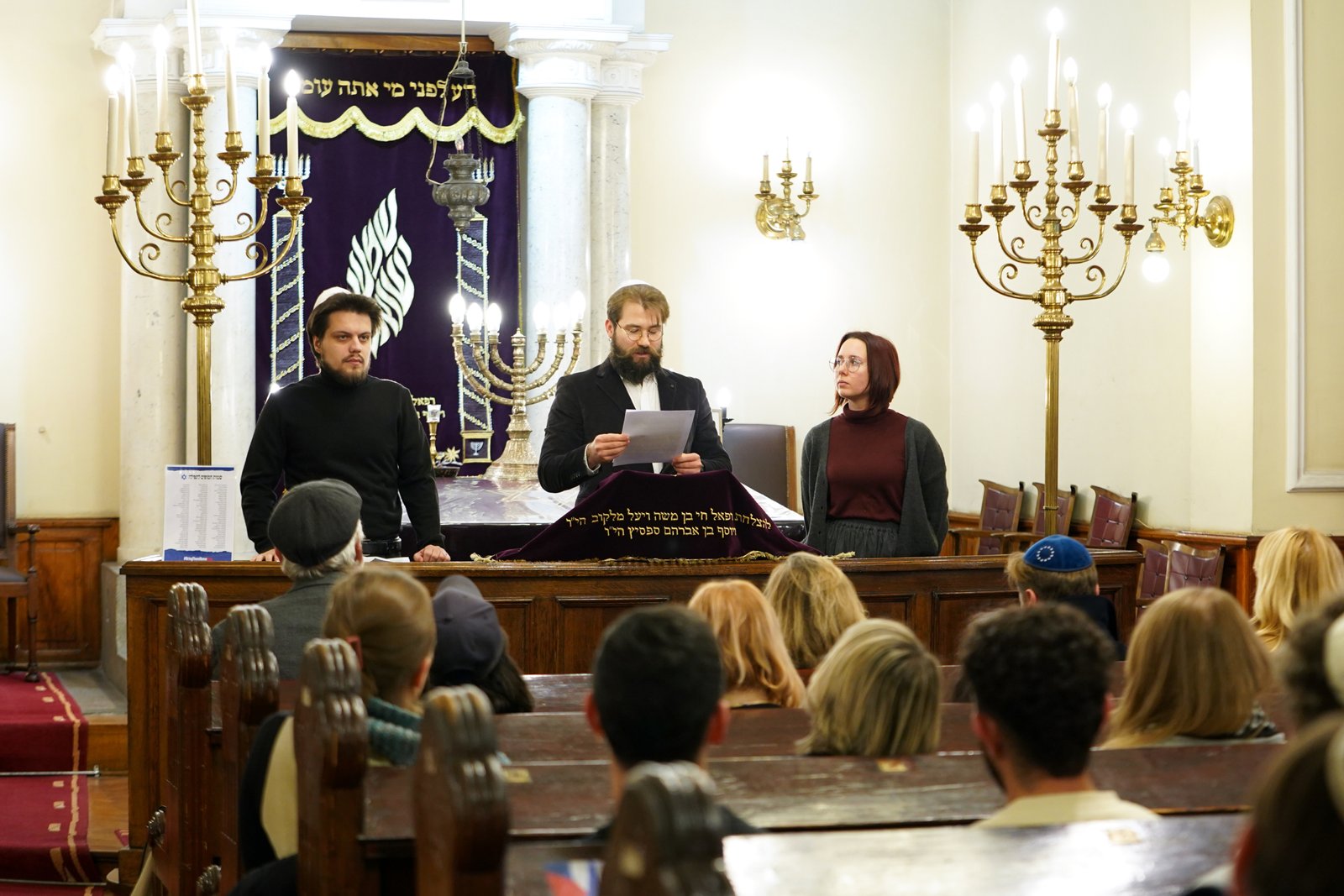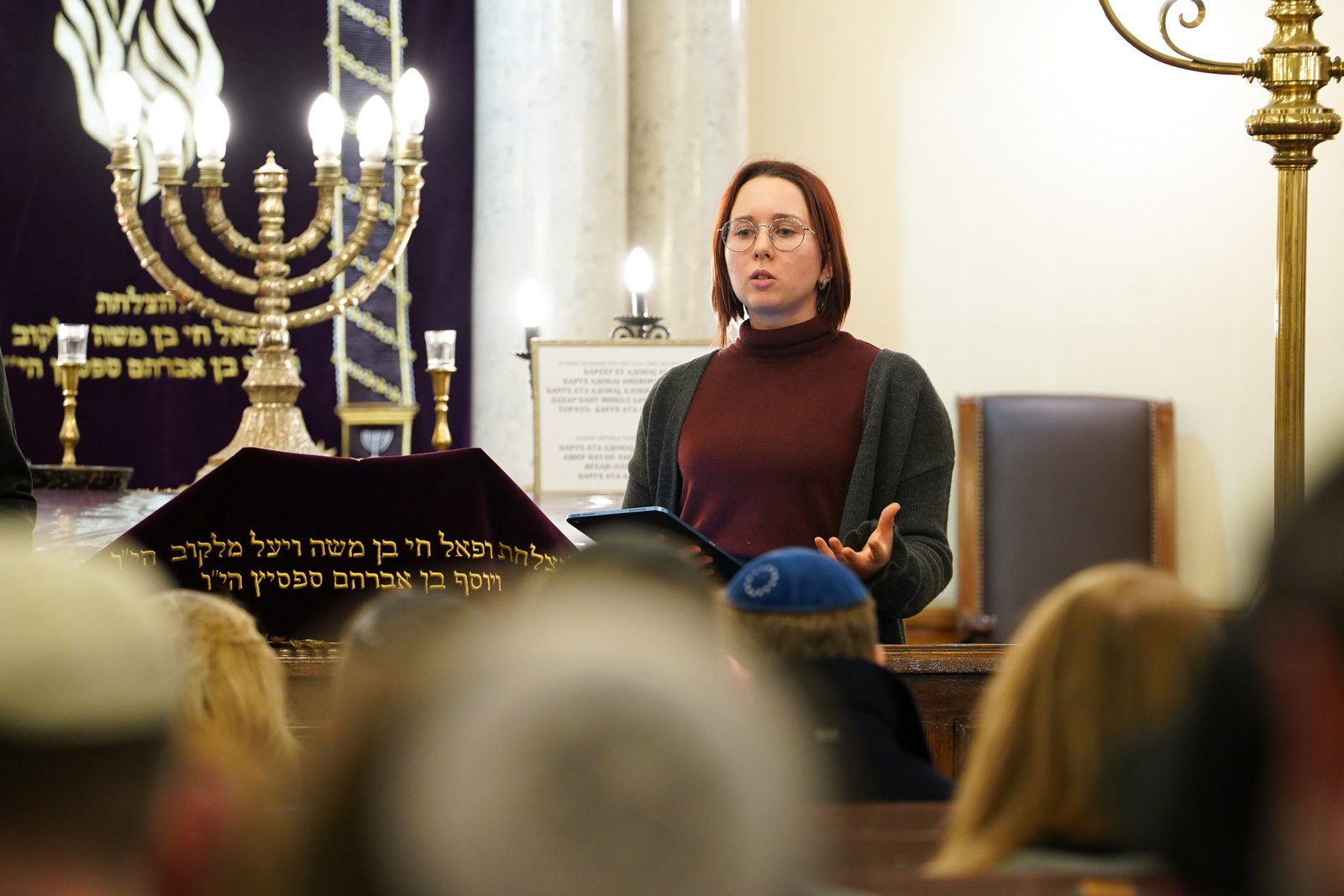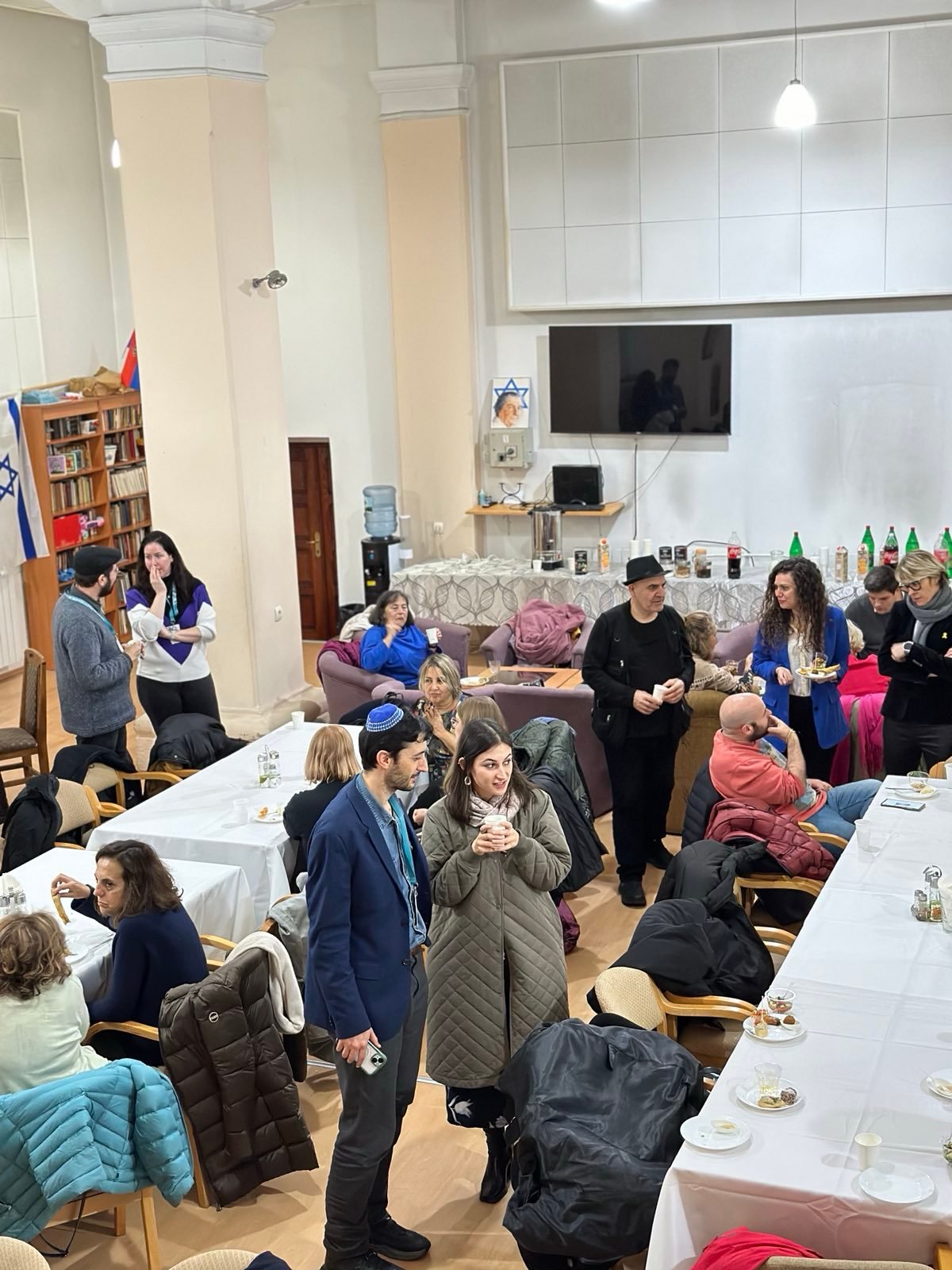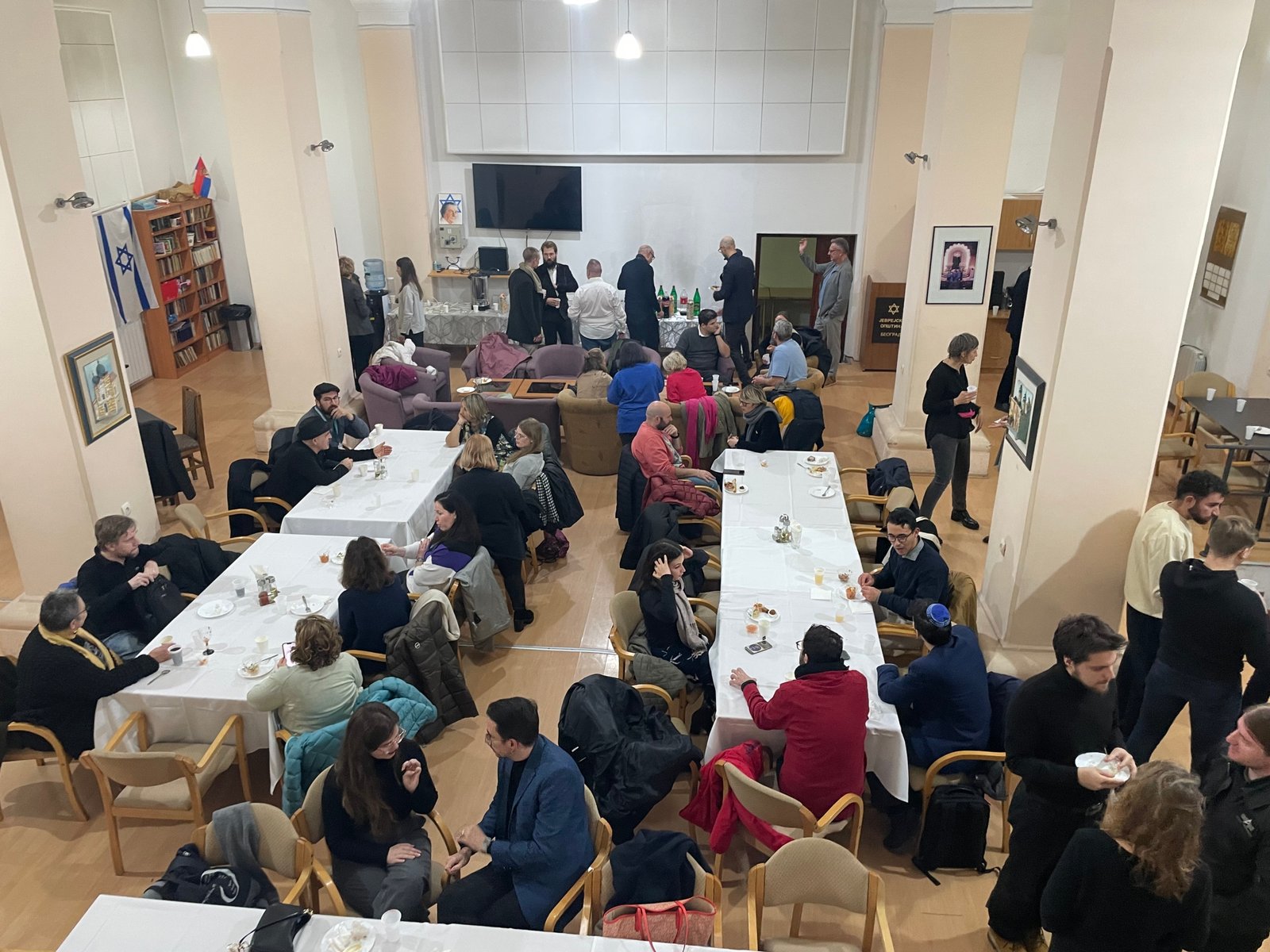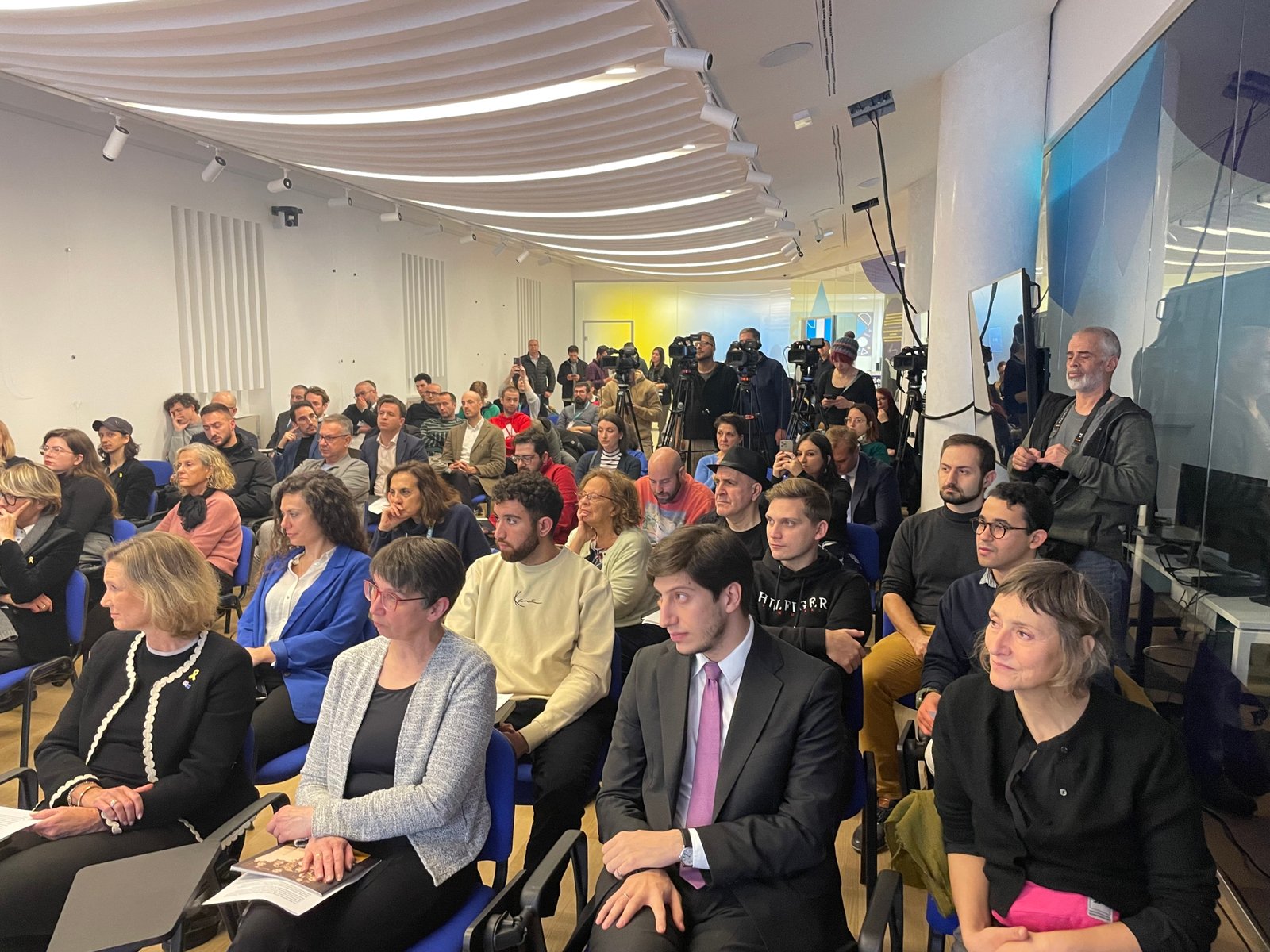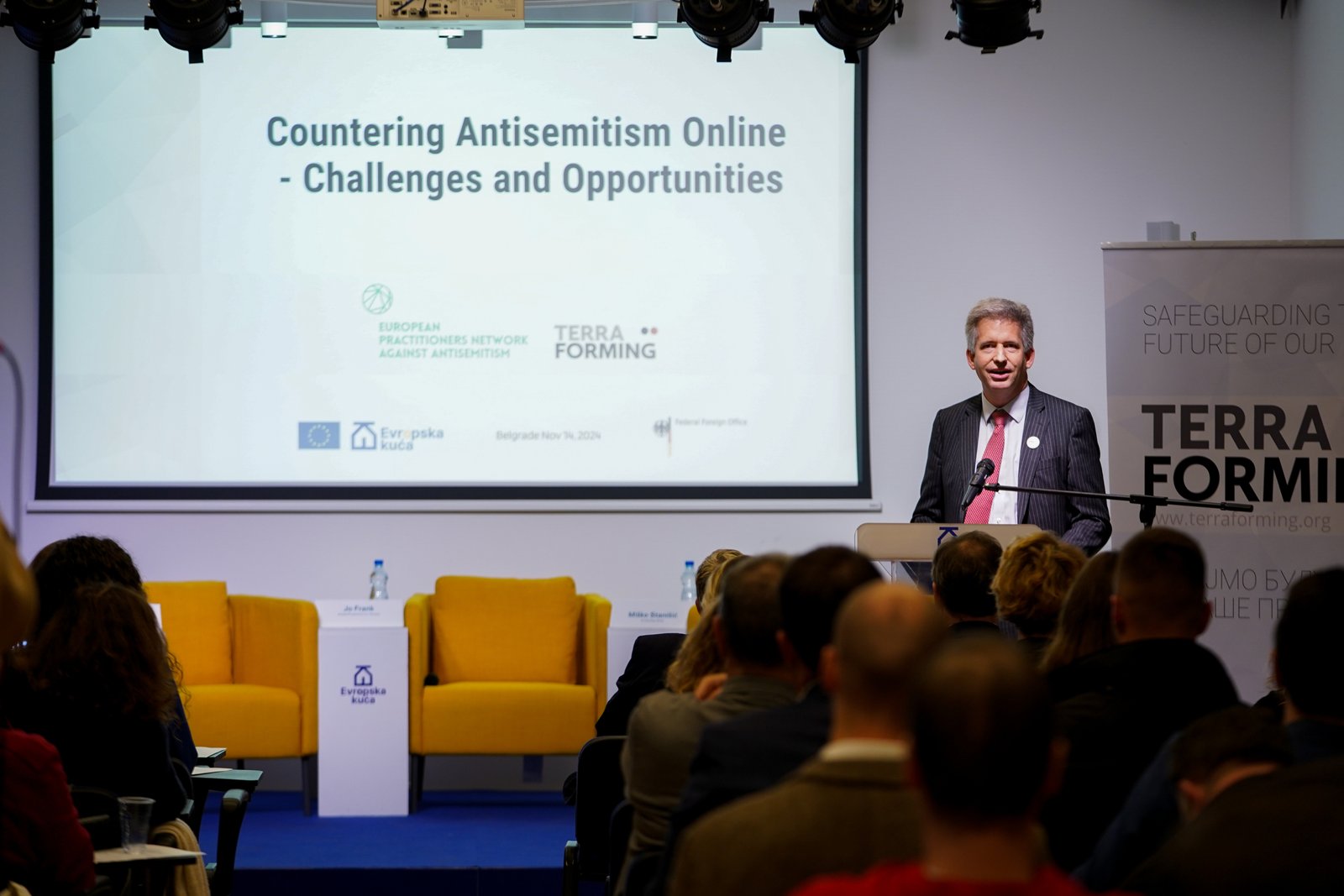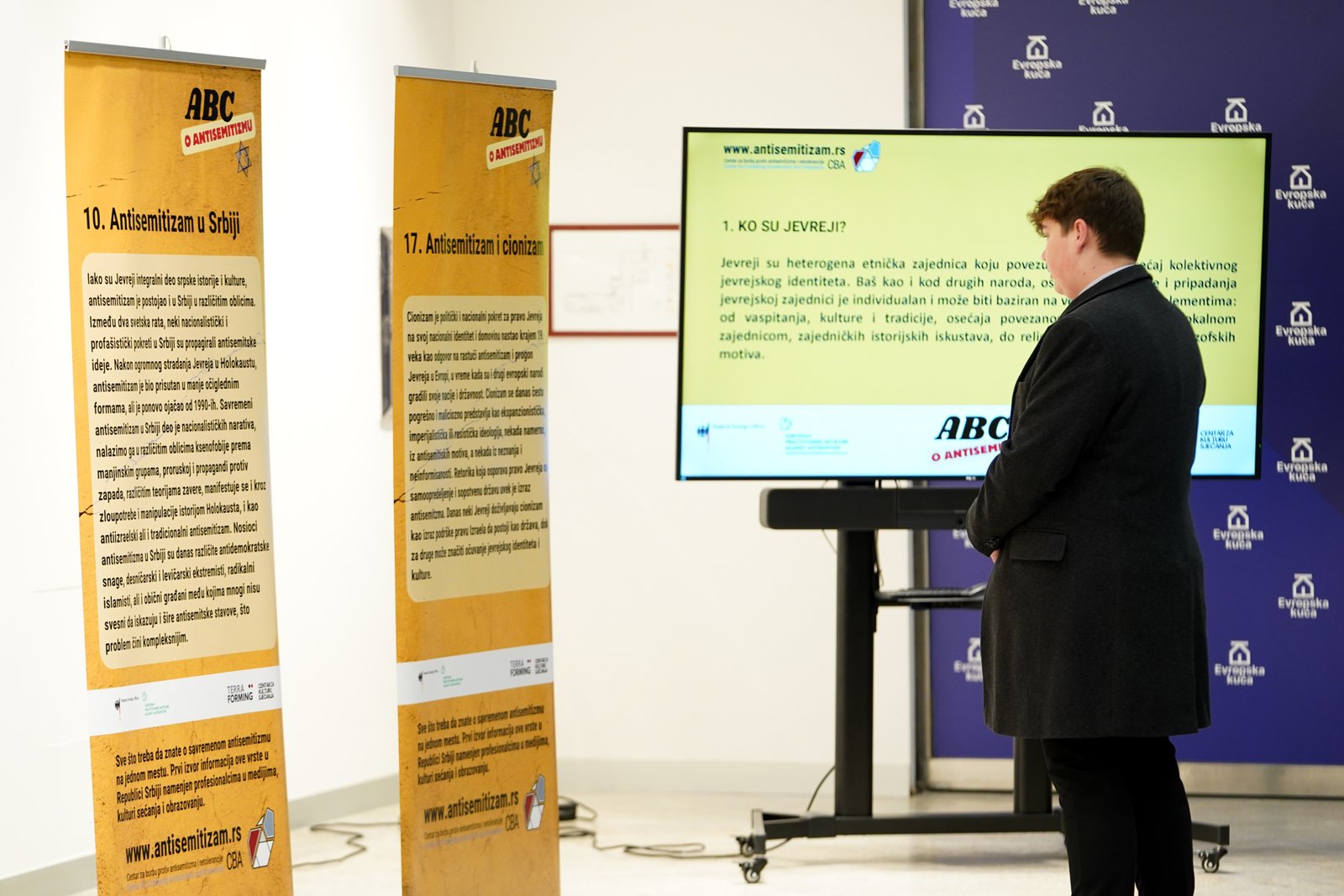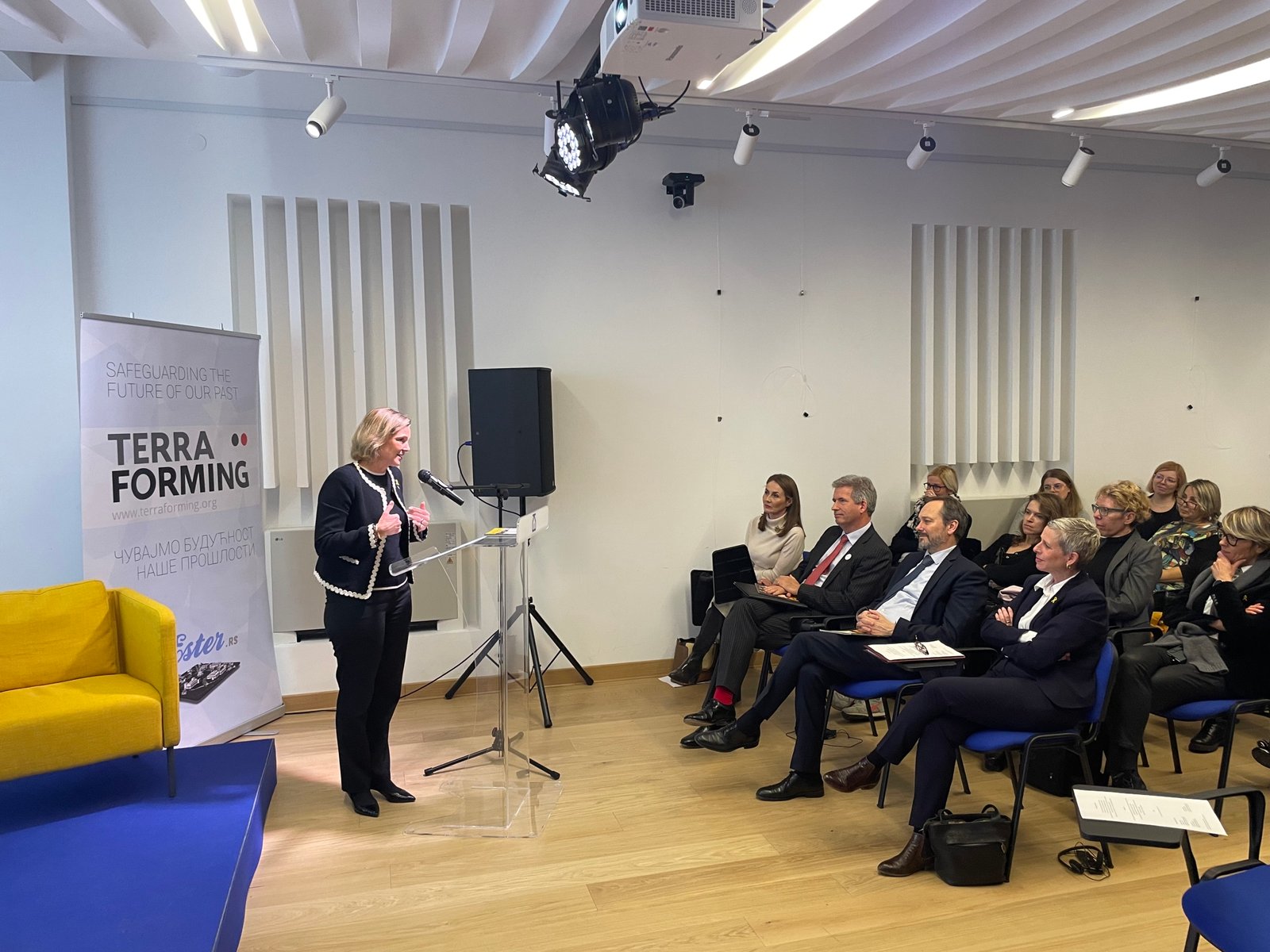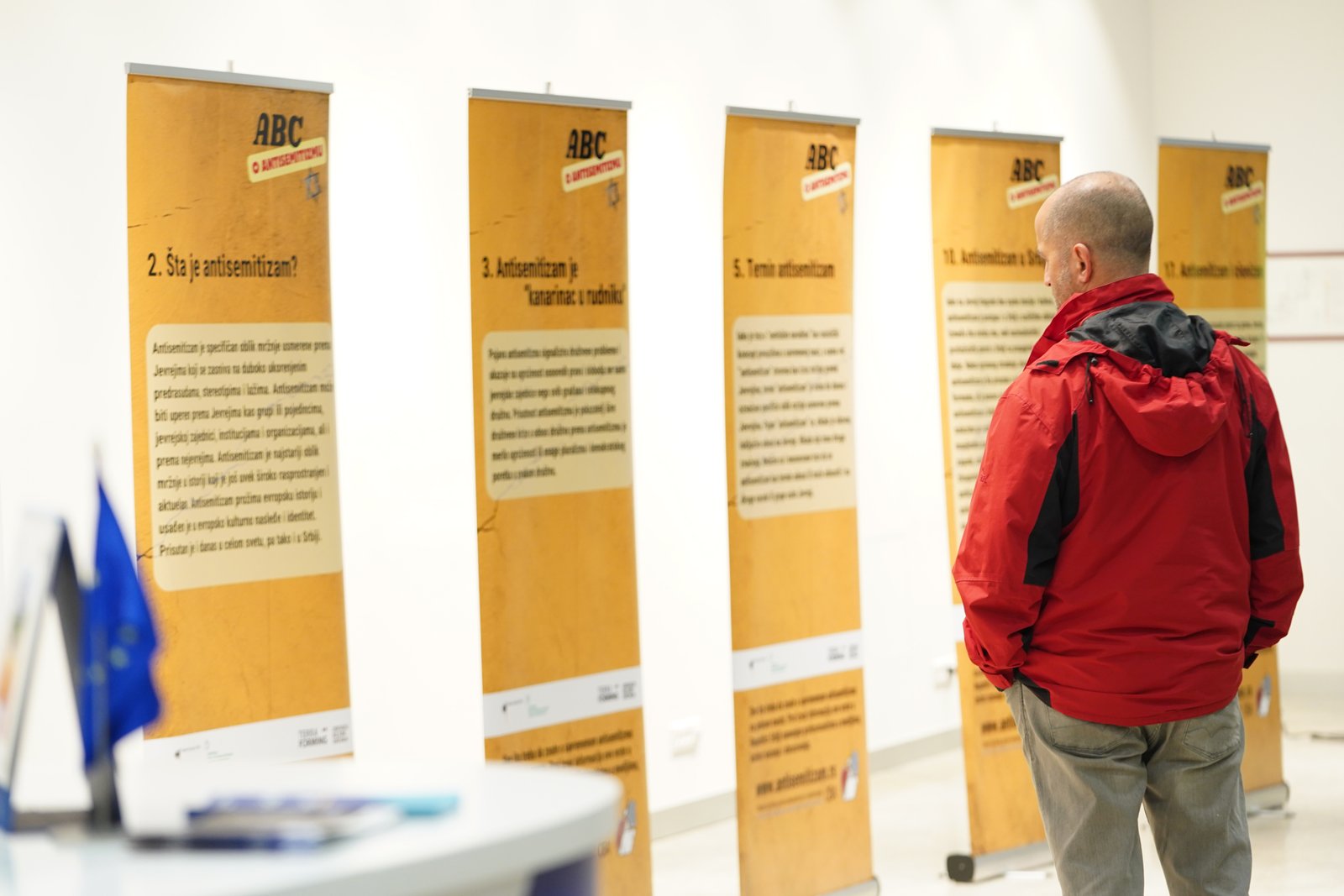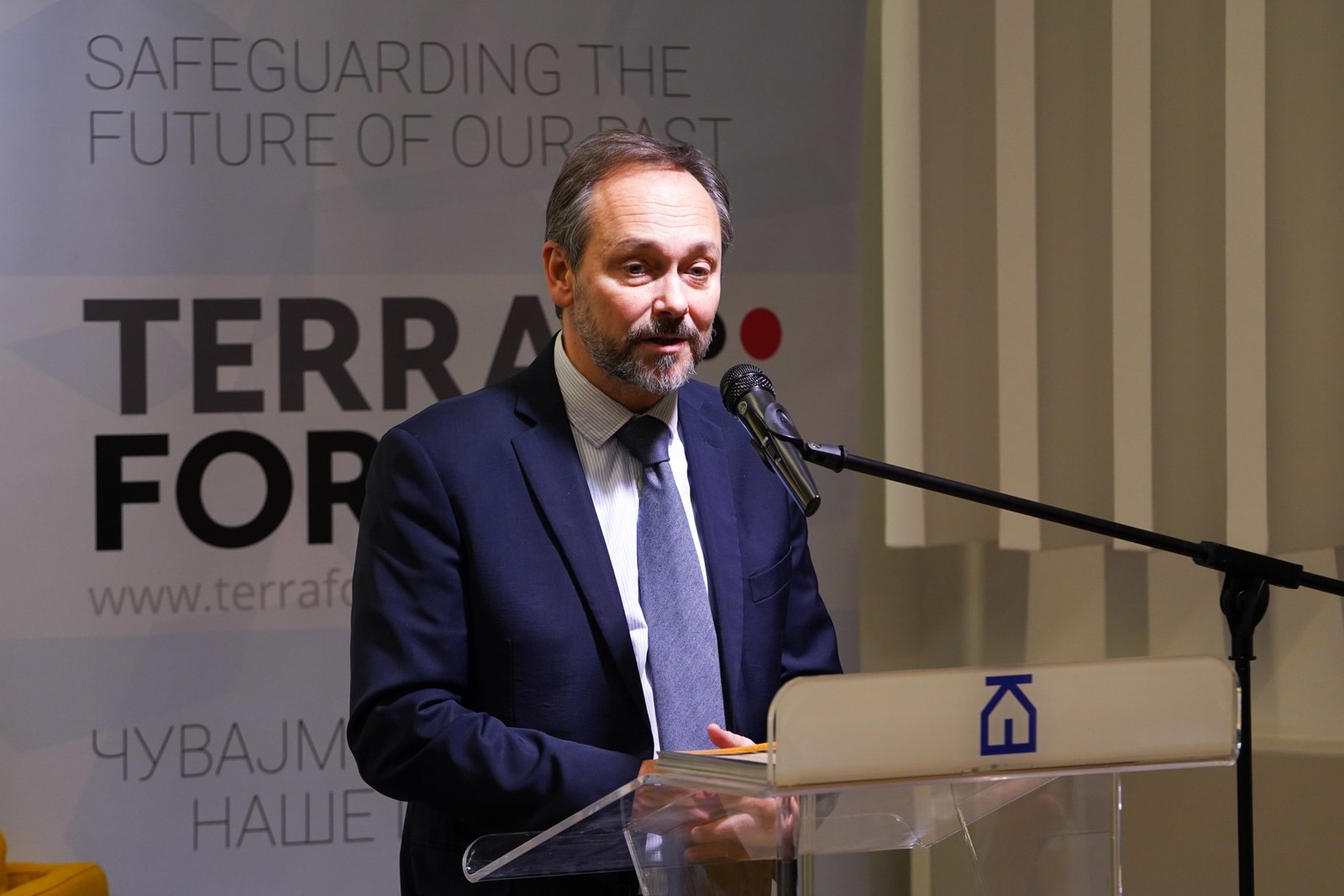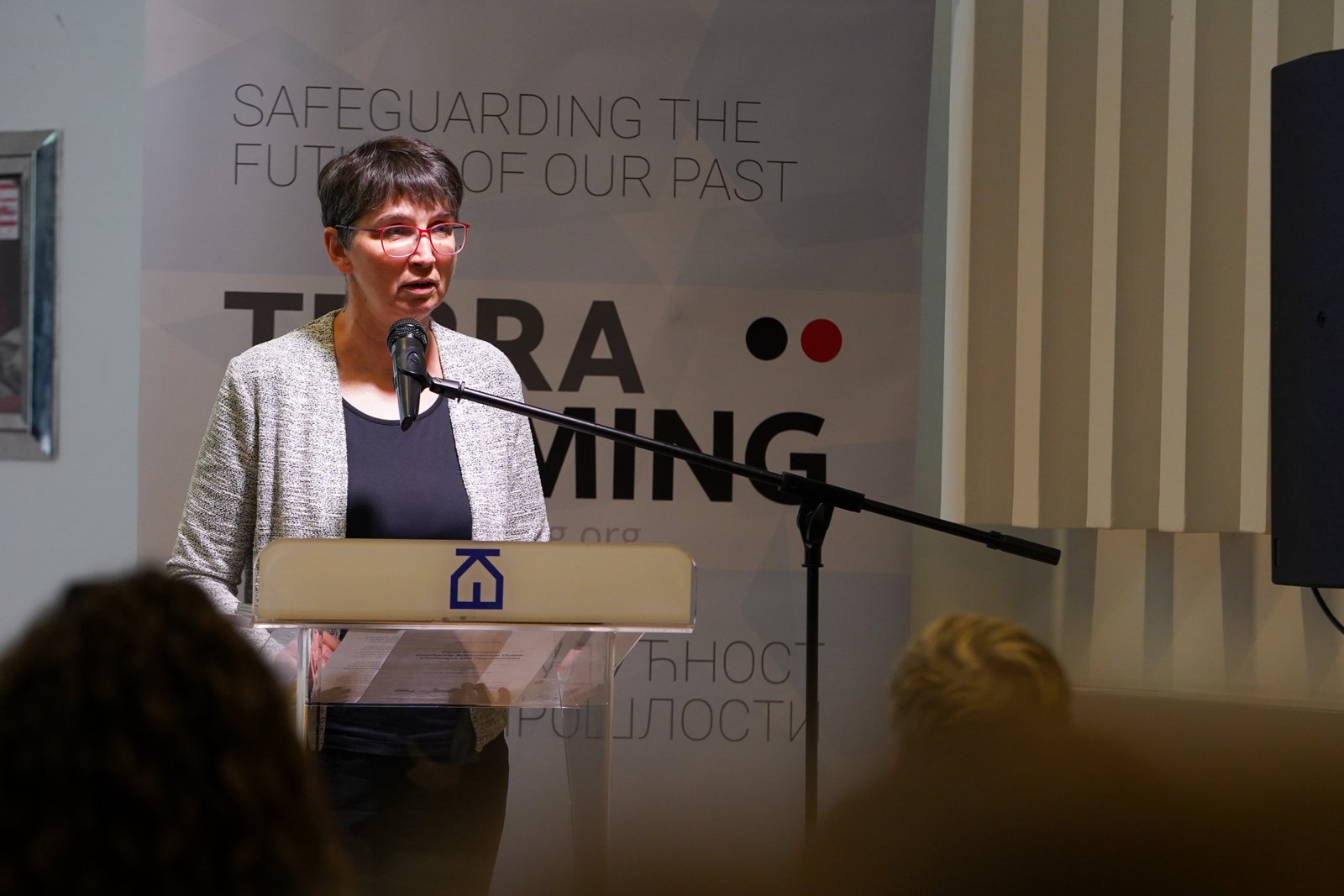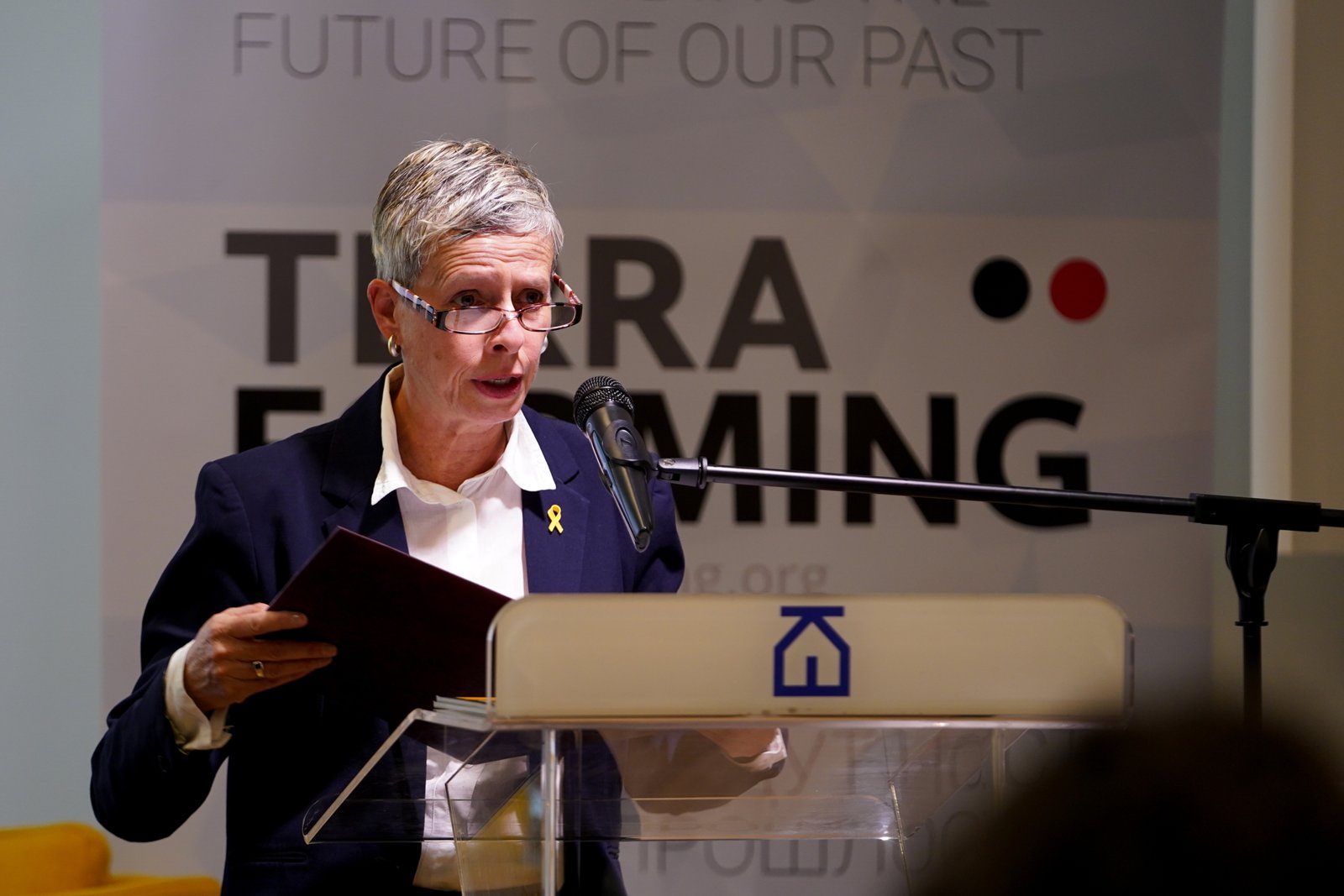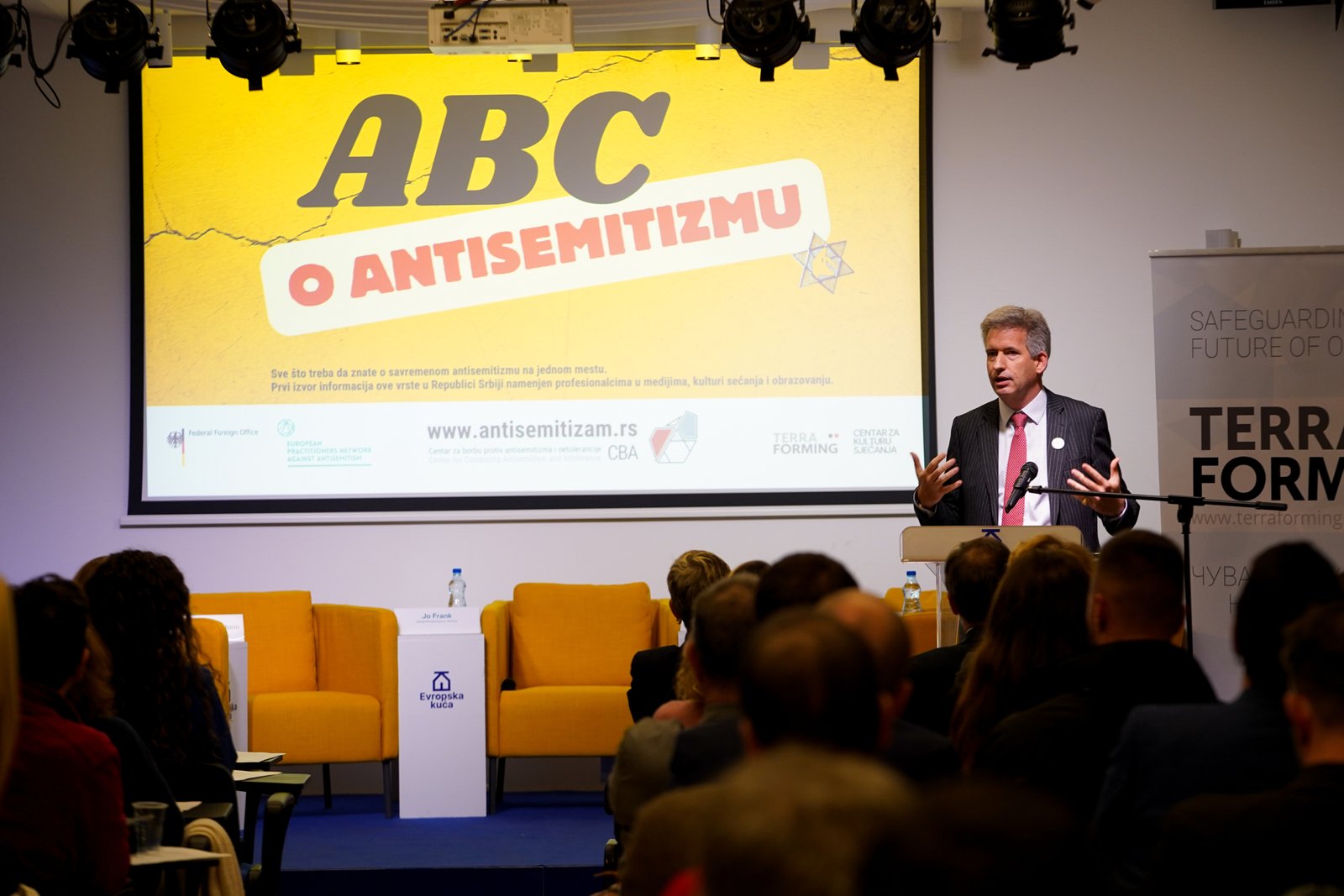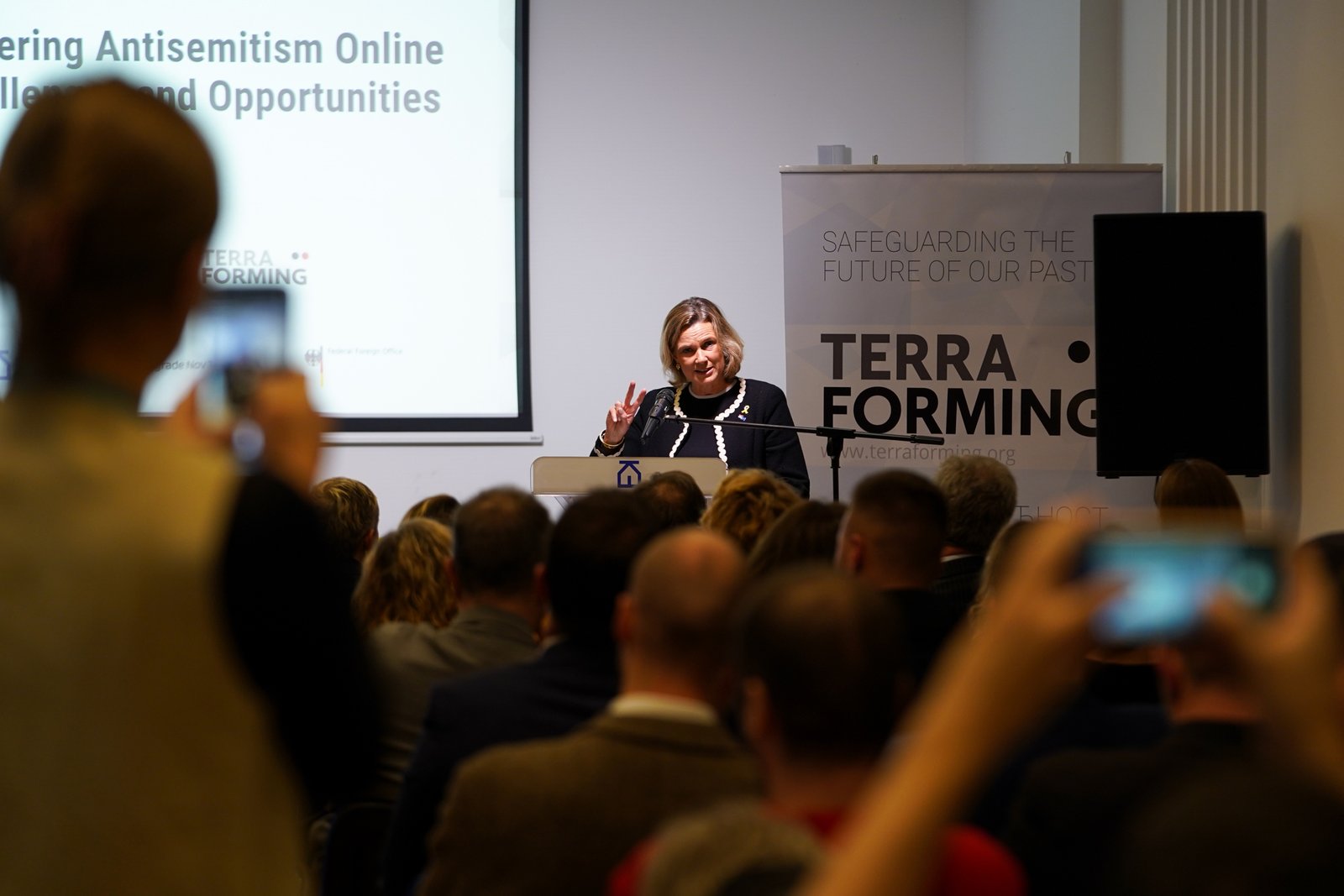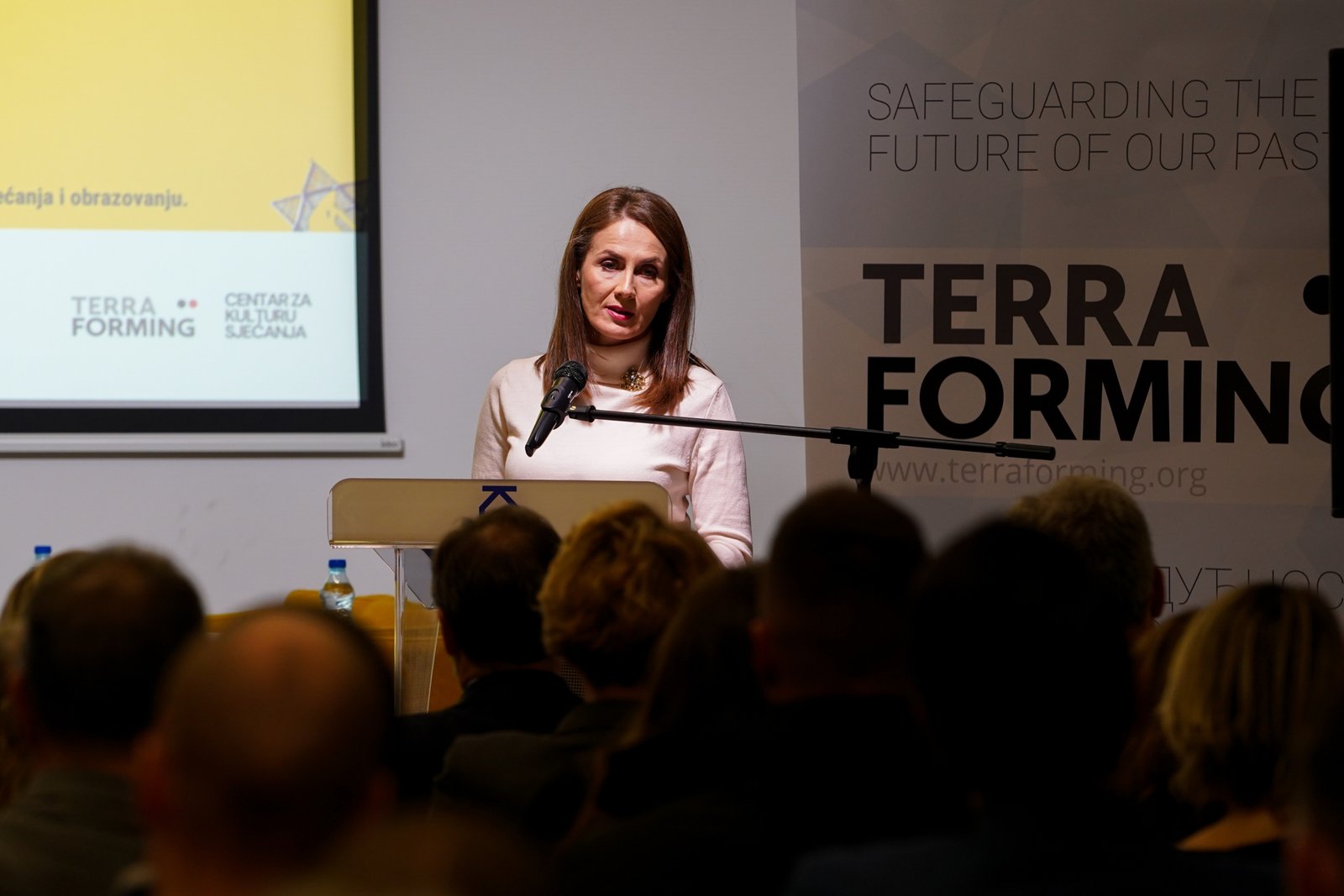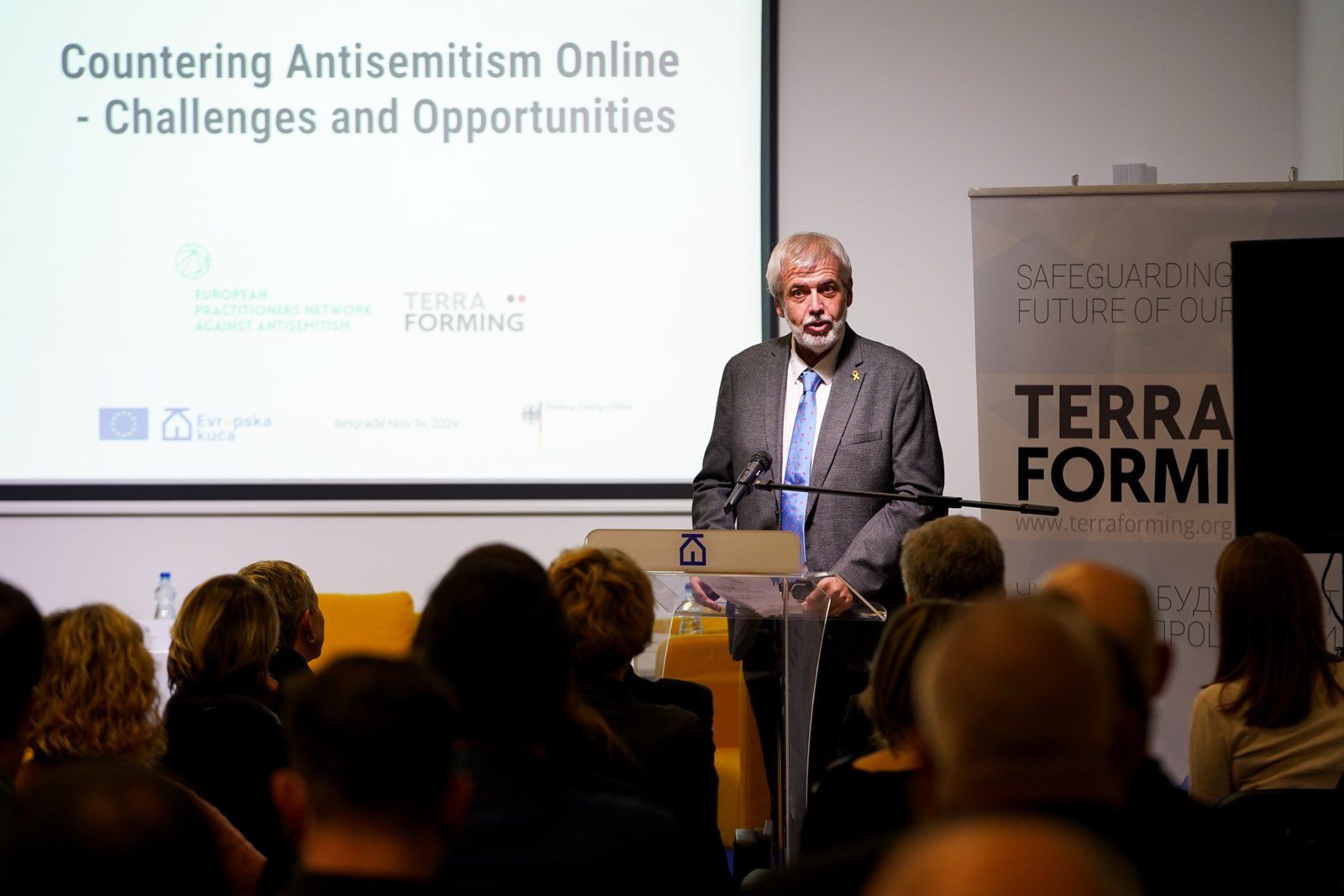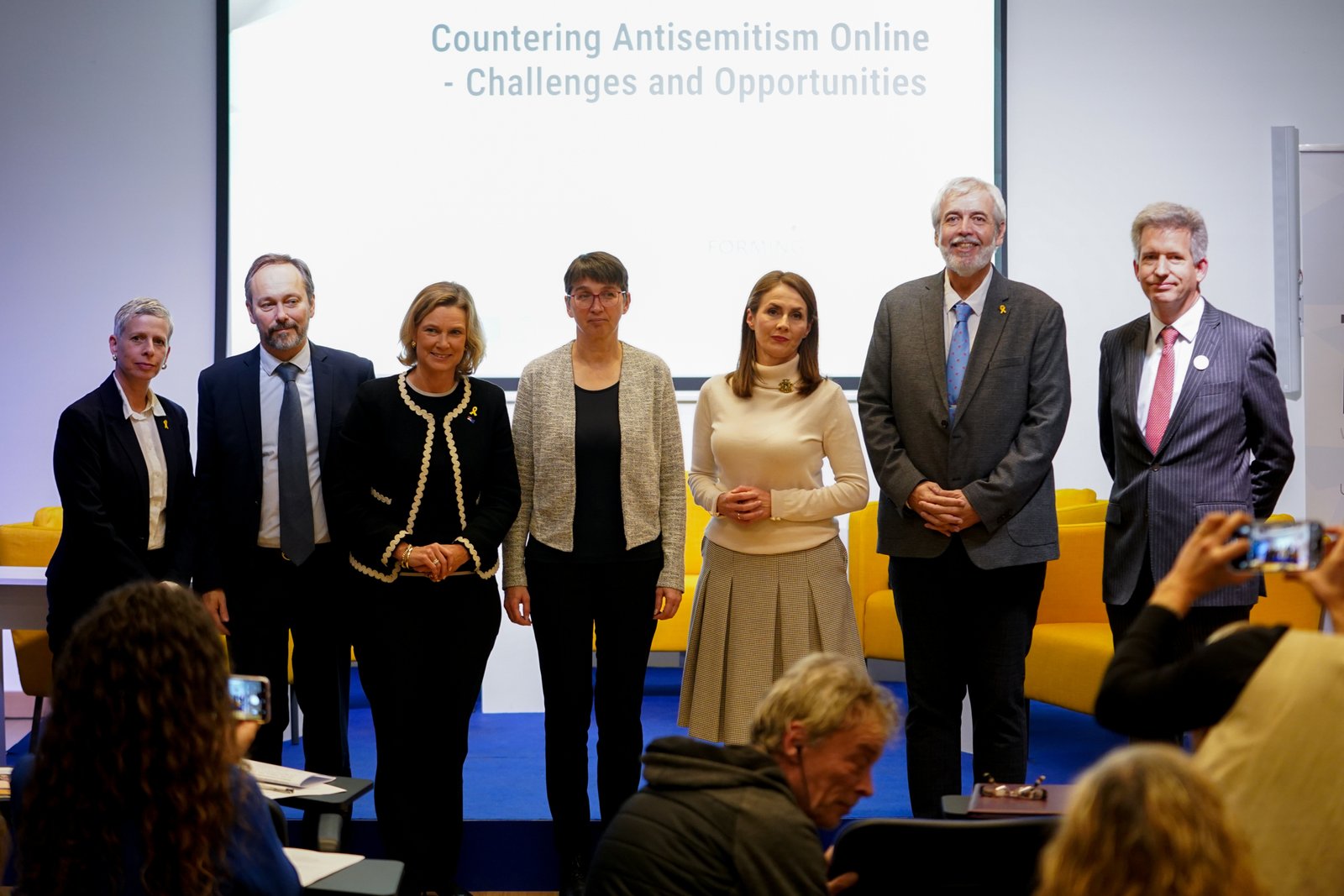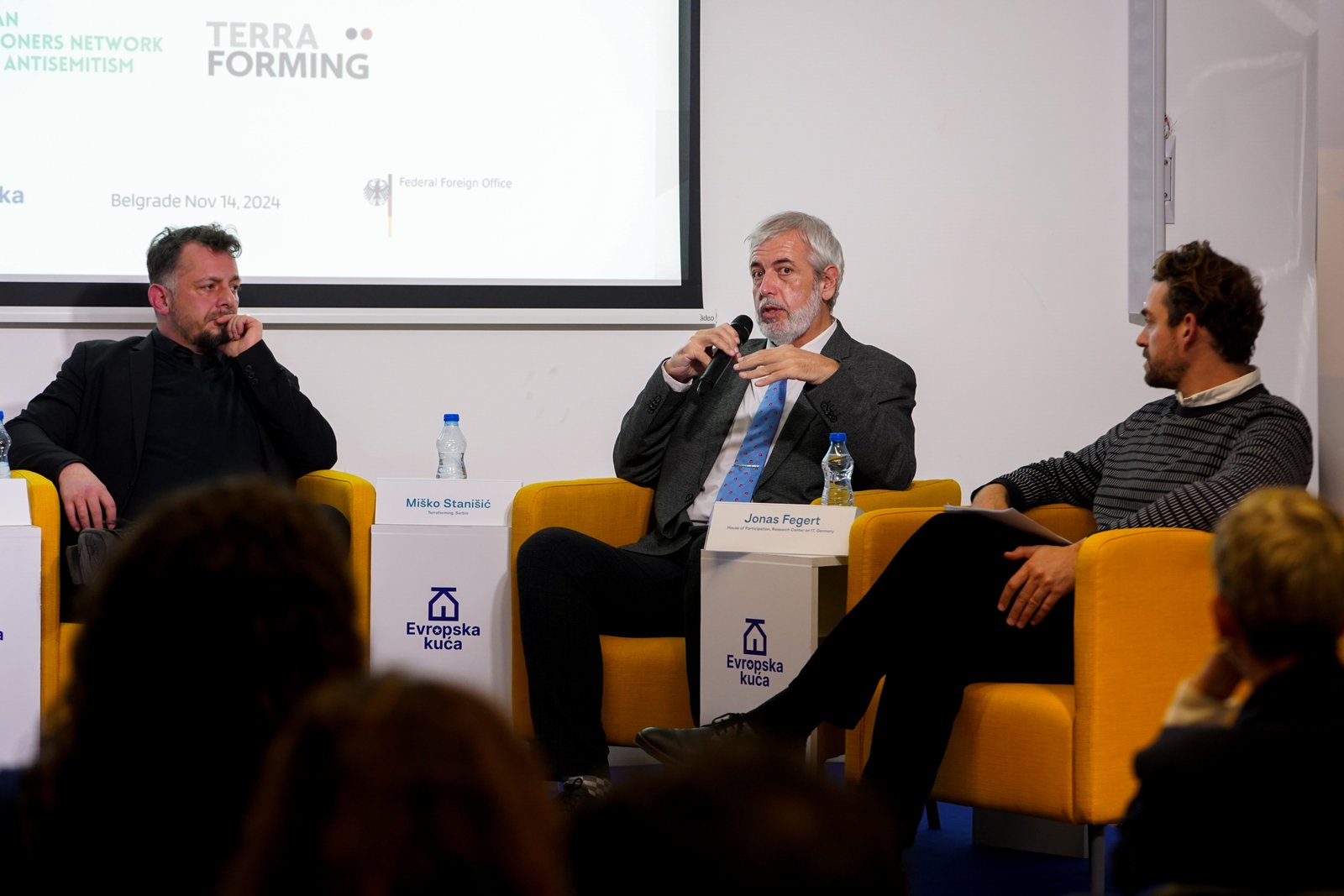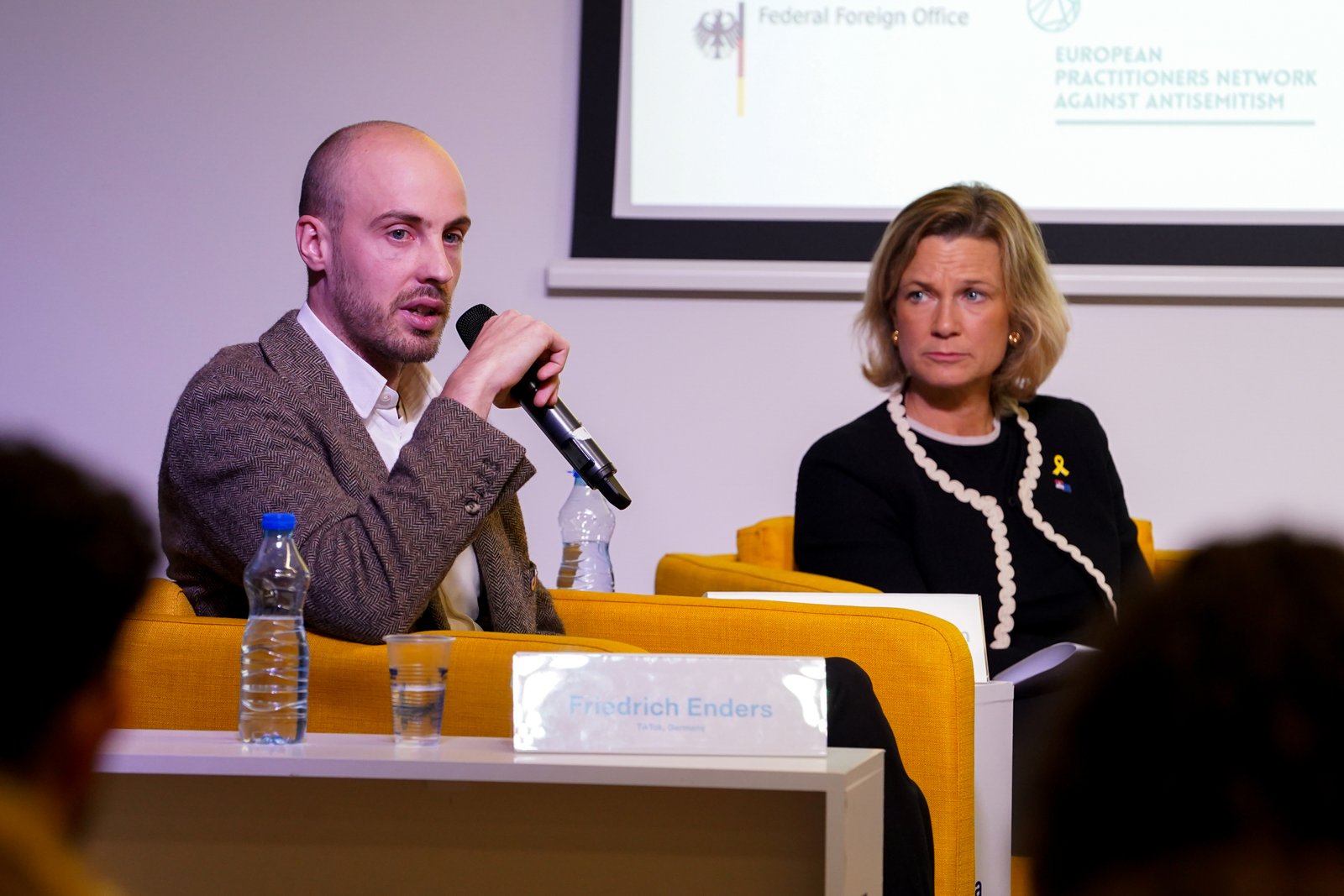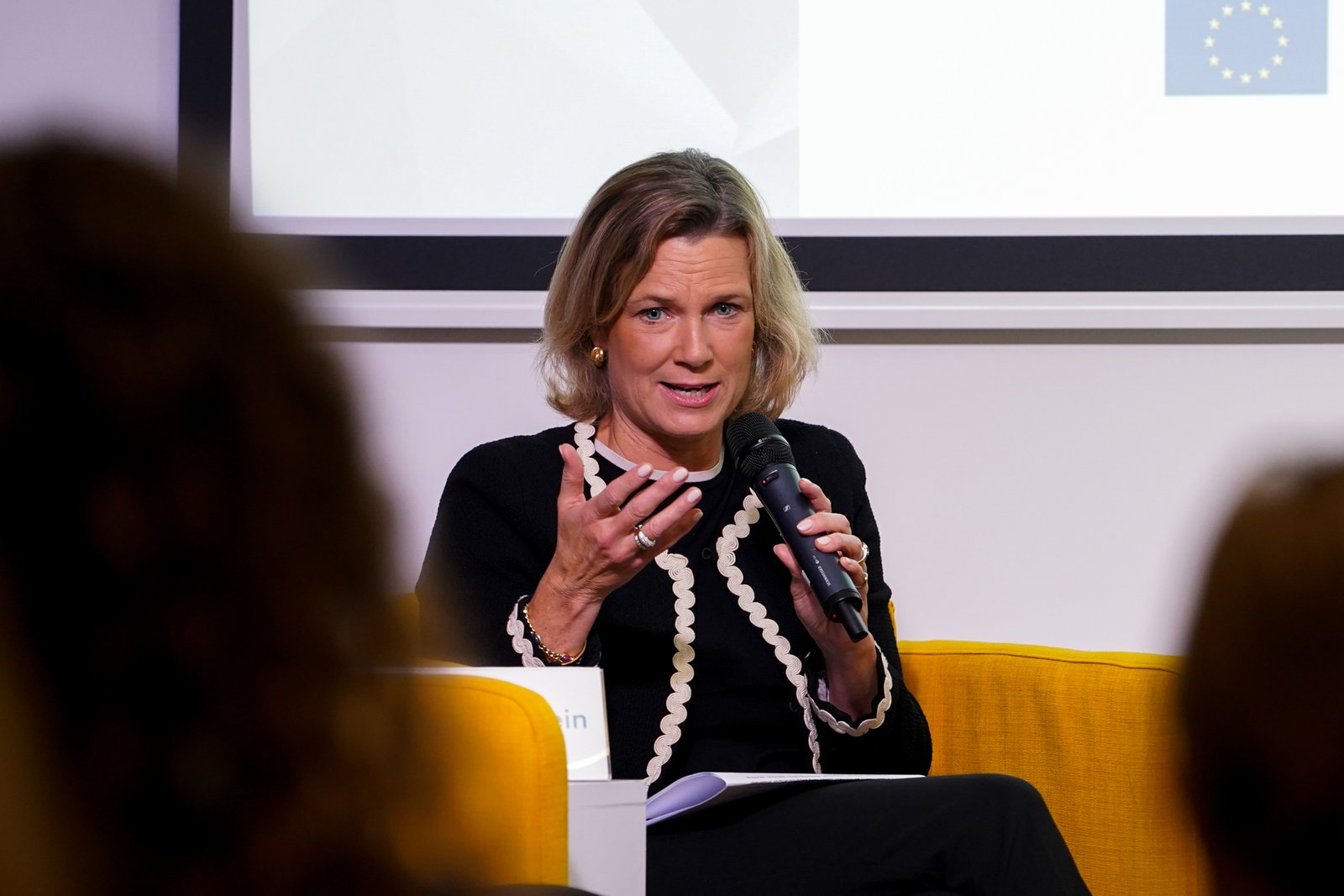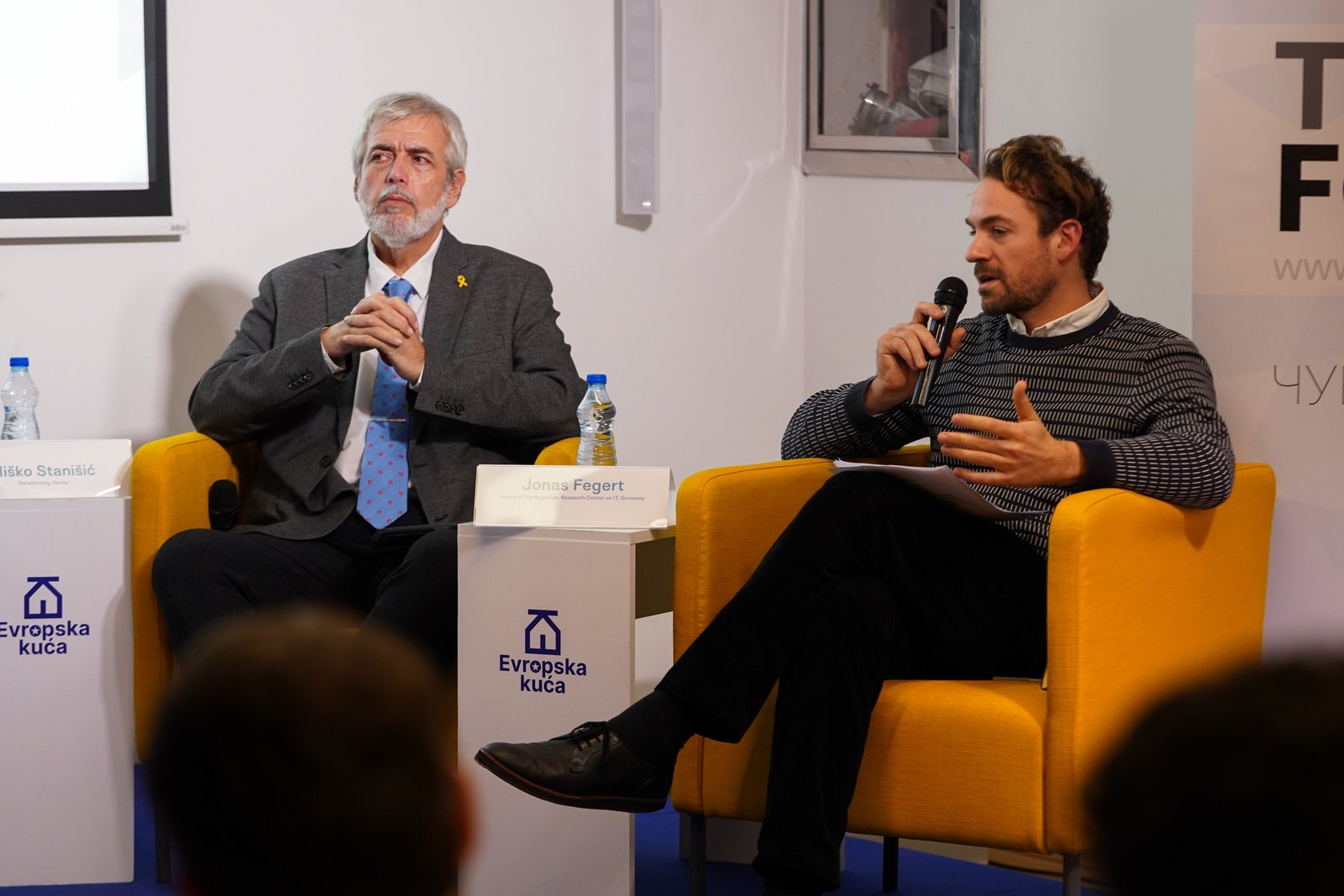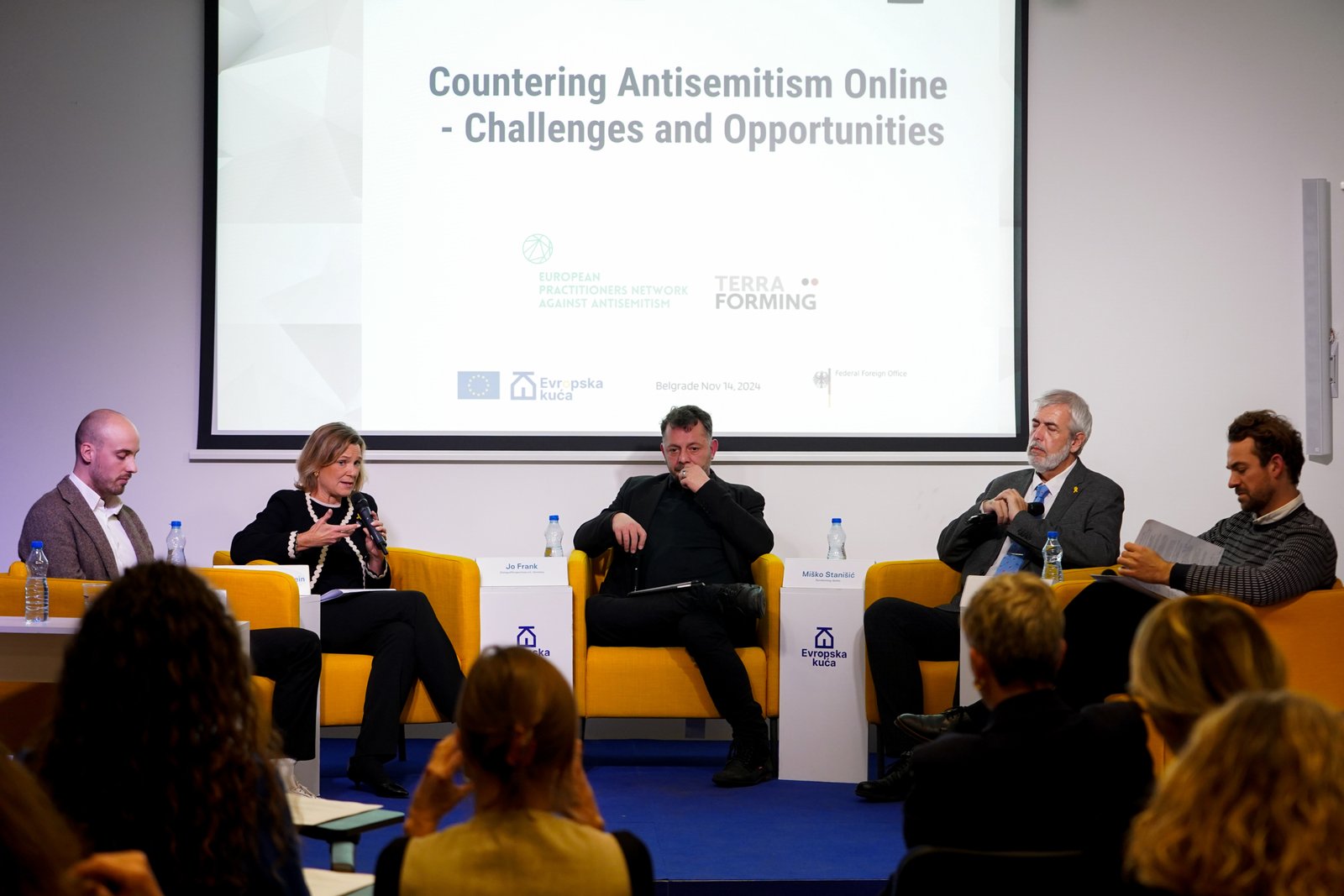Antisemitism is not sufficiently recognized as a problem in the Republic of Serbia
Antisemitism poses a challenge in every society, particularly where a lack of knowledge, understanding, and courage impedes open and honest public discourse about this specific form of hatred. Unfortunately, such an absence of engagement leads to a lack of strategic plans, initiatives, and measures to monitor, prevent, and combat antisemitism effectively.
In the Republic of Serbia, one of the key issues is the insufficient recognition of antisemitism as a problem. On the contrary, it is not uncommon to hear claims, even from senior officials, that “there is no antisemitism” in Serbia or that “it is much worse in other countries.” Such statements are, of course, no justification for the absence of a proactive approach to addressing and mitigating existing issues.
No European society is immune to the challenges of antisemitism. This hatred has been deeply entrenched in the cultural identity and worldview of Europe for centuries. Anti-Jewish prejudices, stereotypes, and myths have been perpetuated across generations and continue to be disseminated in all sectors of society—across political ideologies, age groups, genders, socioeconomic classes, and levels of education.
Lack of knowledge and understanding of what antisemitism is
In the second decade of the 21st century, Serbia is part of a modern, interconnected world where information—including lies and antisemitic propaganda—is accessible through new media to virtually everyone, spreading instantaneously. This reality became especially evident following the Hamas terrorist attack on Israel on October 7, 2023, which triggered an unprecedented global wave of antisemitism. It would be both naive and irresponsible to claim that this issue has somehow bypassed Serbia, leaving our Jewish community and broader society unaffected.
The reluctance to address antisemitism in Serbia highlights a deeper issue: a fundamental lack of knowledge and understanding of what antisemitism entails, as well as the inability to recognize it. This is a serious shortcoming, as antisemitism has persisted long after the fall of Nazism and the Holocaust, remaining a troubling feature of contemporary society.
A common misconception is that Holocaust remembrance and education alone are sufficient to enable society, especially young people, to recognize and understand modern antisemitism. However, after more than three decades of accumulated experience in leading global institutions focused on this issue, it is clear that while Holocaust education is critical and invaluable, it cannot replace education specifically about antisemitism. Similarly, teaching about antisemitism cannot serve as a substitute for learning about the Holocaust. Both are essential and complementary components of fostering a deeper understanding and combating prejudice in today’s world.
Center for Combating Antisemitism and Intolerance CBA
Recognizing that education about the Holocaust, while crucial, is not sufficient on its own and that targeted efforts are needed to enhance knowledge and build capacities for identifying and combating contemporary antisemitism, Terraforming took a proactive step in 2022. It established the Center for Combating Antisemitism and Intolerance (CBA) as a dedicated platform. The CBA aims to develop long-term strategies for combating antisemitism, drawing inspiration from the EU strategy on combating antisemitism and fostering Jewish life.
Miško Stanišić and Katharina von Schnurbein inspect publications and teaching materials on antisemitism produced by Terraforming.
EPNA Network Meeting in Belgrade
From November 13 to 15, Belgrade hosted a meeting of the European Practitioners Network against Antisemitism (EPNA), a coalition of organizations from over 20 European countries. EPNA connects civil society and institutions across Europe in the fight against antisemitism, spanning countries from the UK to Georgia and Denmark to Serbia. The network’s headquarters are located in Berlin.
This three-day event, titled “Exploring Polycrisis Online: On the Digital Space and Antisemitism,” was co-organized by Terraforming and EPNA. It brought together over 40 activists and experts from countries including Poland, Germany, Spain, Italy, Hungary, Greece, Slovakia, the Czech Republic, the UK, Estonia, Lithuania, the USA, and Serbia to discuss contemporary antisemitism in Europe, share experiences, and explore the situation in Serbia.
As part of the program, EPNA members presented the challenges in their respective countries and engaged with Serbian civil society organizations such as Haver Serbia, the European Roma Institute for Arts and Culture (ERIAC Serbia), Belgrade Pride/Civil Rights Defenders, and the Center for Contemporary Policies. Participants also had the opportunity to meet members of Serbia’s Jewish community and contribute to a public program on antisemitism at the European House.
First official visit to Serbia by European Commission Coordinator for Combating Antisemitism and Fostering Jewish Life
Katharina von Schnurbein, the European Commission Coordinator on Combating Antisemitism and Fostering Jewish Life, made her first official visit to the Republic of Serbia in November 2024. This visit was a significant milestone in our ongoing efforts to initiate a public dialogue in Serbian society about the challenges of antisemitism. We had been coordinating with von Schnurbein to participate in our programs since Novi Sad’s tenure as the European Capital of Culture. Finally, we managed to arrange it on November 14, when she participated in a panel discussion organized by Terraforming in collaboration with the European Practitioners Network against Antisemitism (EPNA) at the European House in Belgrade.
Presentation of the UP2US project at the Institute for Philosophy and Social Theory
We extended an invitation to Katharina von Schnurbein to visit the ShoahLab at the Institute for Philosophy and Social Theory (IFDT). The institute is one of the few academic institutions in the region dedicated to researching the Holocaust, antisemitism, and related topics and is actively working toward establishing an accredited postgraduate program in Holocaust Studies.
During her visit, in addition to learning about the institute’s remarkable work, we presented the project “UP2US – Mapping the Understanding of Contemporary Antisemitism,” for which Terraforming and the IFDT received an academic research grant from the Alfred Landecker Foundation. This project connects three European Capitals of Culture—Novi Sad, Rijeka, and Timișoara—and involves a consortium of 11 institutions and organizations from Serbia, Croatia, Romania, Germany, Norway, and the USA. The project focuses on developing methodologies to map the understanding and recognition of contemporary antisemitism among key target groups who shape public attitudes on the issue. The ultimate goal is to evaluate the capacity of key stakeholders to identify antisemitism and provide recommendations that align with the EU Strategy on Combating Antisemitism, contributing to the development of a national strategy.
Von Schnurbein expressed her admiration for the presented initiatives, affirmed the European Commission’s strong support, and outlined plans to develop a network of European institutions dedicated to addressing antisemitism.
The discussion included representatives from the IFDT, such as Director Gazela Pudar Draško, ShoahLab Coordinator Milovan Pisarri, ShoahLab members, and students. Representing Terraforming were Miško Stanišić, Nevena Bajalica, Ljiljana Ćumura, and Sara Ivić.
A visit to the Jewish Youth Club
As part of the EPNA network meeting, participants, along with Katharina von Schnurbein, visited the Sukat Shalom Synagogue and the Youth Club of the Jewish Community of Belgrade. On the way to the synagogue, the group stopped on Marshal Birjuzov Street to view the Stolpersteine—”stumbling blocks” embedded in the pavement in memory of the Dajč family, who were taken from that very location to their deaths during the Holocaust.
At the synagogue, the group was warmly welcomed by Filip Belevski, Vice President of the Youth Club, Isidora Jurjević, the club’s activities coordinator, and other young activists. They delivered a moving and insightful presentation about the synagogue’s history, its significance, the Belgrade Jewish community, and the work they are doing to support Jewish youth while addressing the challenges they face.
Mateja Bogunović, coordinator of activities for the children’s clubs within the Jewish Community of Belgrade, spoke about the difficulties young children face when confronted with antisemitism. He explained the impossibility of helping children fully understand why they are targets of hatred. Instead, his efforts are dedicated to strengthening their Jewish identity, which he sees as the most constructive and empowering response to such prejudice.
The visit provided an opportunity for participants to connect with the local Jewish community, understand their experiences, and reflect on the ongoing challenges of combating antisemitism and fostering resilience.
It is impossible to explain to children why someone hates them
Katharina von Schnurbein, the European Commission’s Coordinator for Combating Antisemitism, also addressed the audience during the visit to the Sukat Shalom Synagogue. She expressed her delight at having the opportunity to learn about the work of the Jewish Youth Club and commended their efforts. At the same time, she shared her concern over the rising tide of antisemitism across Europe, emphasizing the importance of such initiatives in building resilience and fostering community strength.
Following the formal part of the visit, a snack was served in the synagogue’s large dining room. This informal gathering allowed the participants of the EPNA network meeting from various European countries to interact with members of the local Jewish community. It provided a valuable opportunity for exchanging experiences, building connections, and discussing shared challenges in combating antisemitism and fostering mutual understanding.
Panel discussion at the Europe House “Countering Online Antisemitism – Challenges and Opportunities”
The highlight of the program was a public event organized by Terraforming and EPNA at the Europe House in Belgrade. The international panel discussion “Countering Online Antisemitism – Challenges and Opportunities” held on November 14, 2024 brought together Serbian and international experts, as well as high representatives of the European Union, ambassadors, participants of the EPNA network meetings, and other interested parties.
ABC on antisemitism – the first reference source in Serbia for questions about antisemitism
During this event, the “ABC on Antisemitism” online platform was presented. Developed by Terraforming in cooperation with the Center for Combating Antisemitism and Intolerance (CBA), the platform provides simple answers to 25 questions about antisemitism, debunking prejudices, misconceptions, and lies. Its aim is to serve the public, media professionals, educators, and those involved in the culture of remembrance as a reference source on issues related to antisemitism, as well as to contribute to developing the capacity to recognize different manifestations of antisemitism across all spheres of society. The initiative to create the “ABC on Antisemitism” platform emerged after the antisemitic attack on the premises of the NGO Haver Serbia in Belgrade in November 2023. Following the attack on the premises of Haver Serbia, numerous openly antisemitic comments celebrating the act appeared on social networks. In stark contrast, condemnations of this act of violence and hatred were scarce, even within civil society. This alarming response highlighted two key issues: the lack of knowledge and understanding of what constitutes antisemitism, and the extent to which antisemitic sentiments are deeply rooted and widespread.
“ABC on Antisemitism” platform was created to address these challenges. Supported through the EPNA microgrant program, the platform aims to raise awareness, debunk misconceptions, and equip the public and professionals with tools to recognize and combat antisemitism effectively.
The platform was officially presented to the public for the first time on November 14, 2024, in Belgrade, during the EPNA network meeting. This marked an important step in fostering greater understanding and strengthening efforts to combat antisemitism in Serbia and beyond.
ABC on Antisemitism offers simple answers to 25 questions about antisemitism, breaking down prejudices and many common misconceptions, misconceptions and lies
Panel discussion
The event continued with a panel discussion featuring prominent participants, including:
- Katharina von Schnurbein – European Commission Coordinator for Combating Antisemitism and Fostering Jewish Life
- Miško Stanišić, the director of Terraforming,
- Friedrich Enders, TikTok’s public policy manager,
- Jonas Fegert, head of the House of Participation at FZI Forschungszentrum Informatik and the Digital Democracy & Participation Research Group of Karlsruhe Institute of Technology,
- The discussion was moderated by Jo Frank, director of the Dialogue-Perception, organization which manages the EPNA network.
During the panel discussion, the participants addressed the growing challenge of antisemitism on social networks and digital platforms, as well as potential solutions, including the development of practical guidelines and strategic recommendations through the UP2US project.
Miško Stanišić highlighted that the most effective way to combat online antisemitism is by promoting media literacy. He stressed that empowering users to recognize, expose, and counter antisemitism independently is the key to tackling this issue. He pointed out that antisemitism itself does not originate on the Internet but that digital platforms reflect the broader societal attitudes in which antisemitism persists.
He also drew attention to the significant role of traditional media in shaping and spreading antisemitic narratives. Miško Stanišić noted that in Serbia, even some television channels with national broadcasting licenses air not only subtle but also overtly antisemitic content. To address this, he emphasized the need to strengthen the capacities of media professionals and editors while also enhancing mechanisms for monitoring and responding to such harmful content.
The entire program, including the panel discussion at the European House, is recorded and is available on YouTube.
In Serbia, certain television channels, including some with national reach, sometime broadcast openly antisemitic content
Addendum: Certain Serbian media outlets reporting about the panel discussion at the Europe House illustrate the urgent need to enhance knowledge and build capacities among media professionals regarding antisemitism, as some of the content produced after the event borders on antisemitic rhetoric. This issue highlights the importance of fostering responsible journalism and media practices. We will address this matter in greater detail in a separate article.
A significant step forward
We regard the successful organization of the European Practitioners Network against Antisemitism (EPNA) meeting in Belgrade, along with the first official visit to the Republic of Serbia by Katharina von Schnurbein, Coordinator of the European Commission on Combating Antisemitism and Fostering Jewish Life, as a major step forward. This achievement represents not only progress in addressing antisemitism in Serbia but also recognition of our dedicated efforts and work in this field.
We remain committed to raising awareness, providing education, and developing effective tools to combat antisemitism. We warmly invite everyone to join us in these efforts, particularly through the Center for Combating Antisemitism and Intolerance (CBA), as we strive to build a more inclusive and tolerant society.
We regard the successful organization of the EPNA meeting and the first official visit to the Republic of Serbia by Katharina von Schnurbein, Coordinator of the European Commission on Combating Antisemitism and Fostering Jewish Life, as a major step forward. This achievement represents not only progress in addressing antisemitism in Serbia but also recognition of our dedicated efforts and work in this field.

